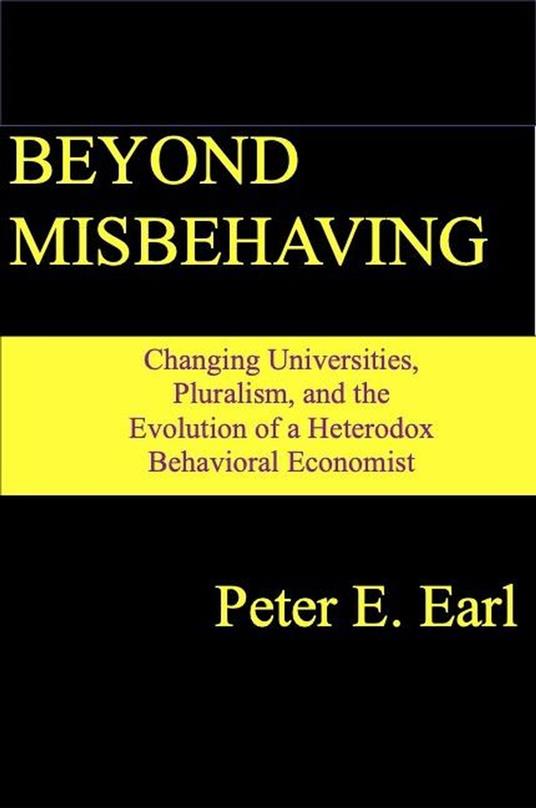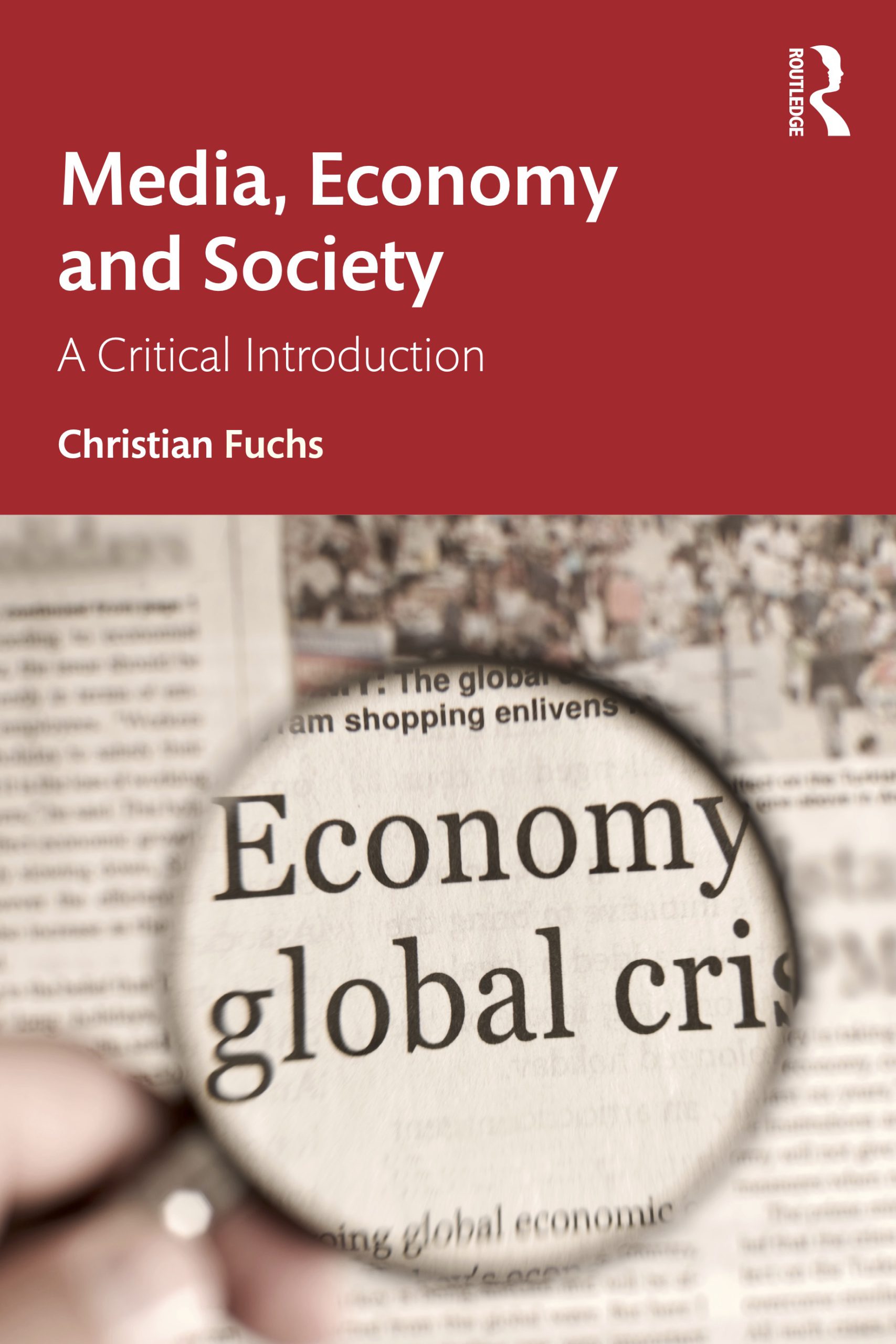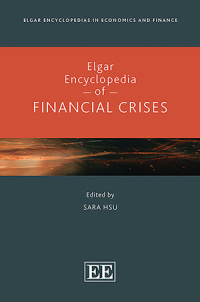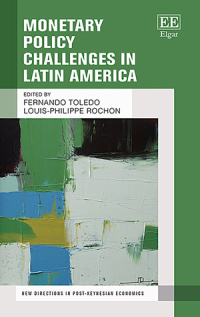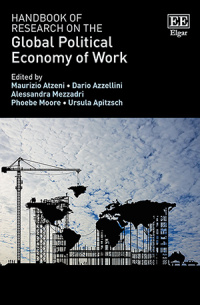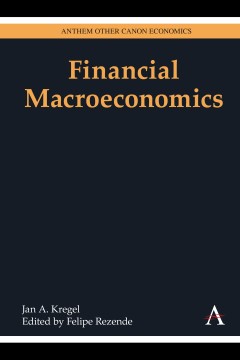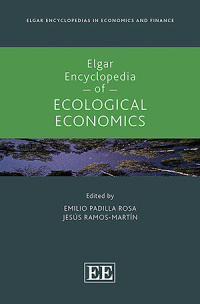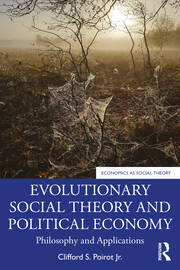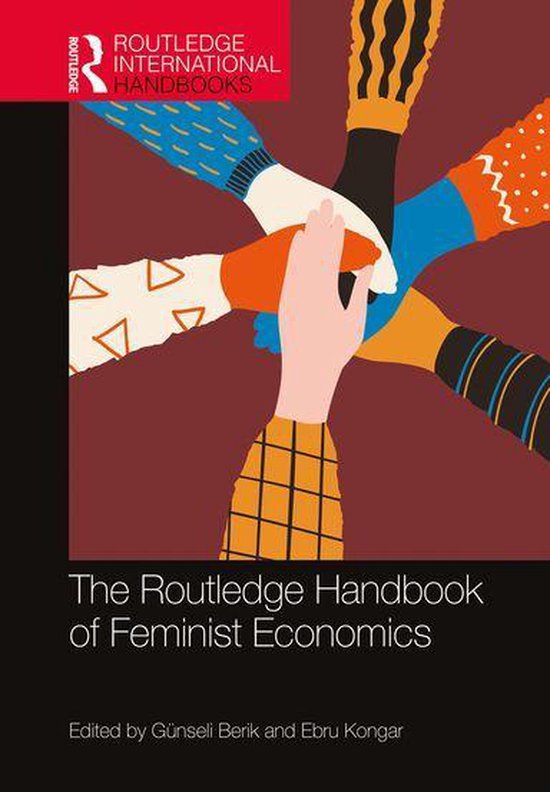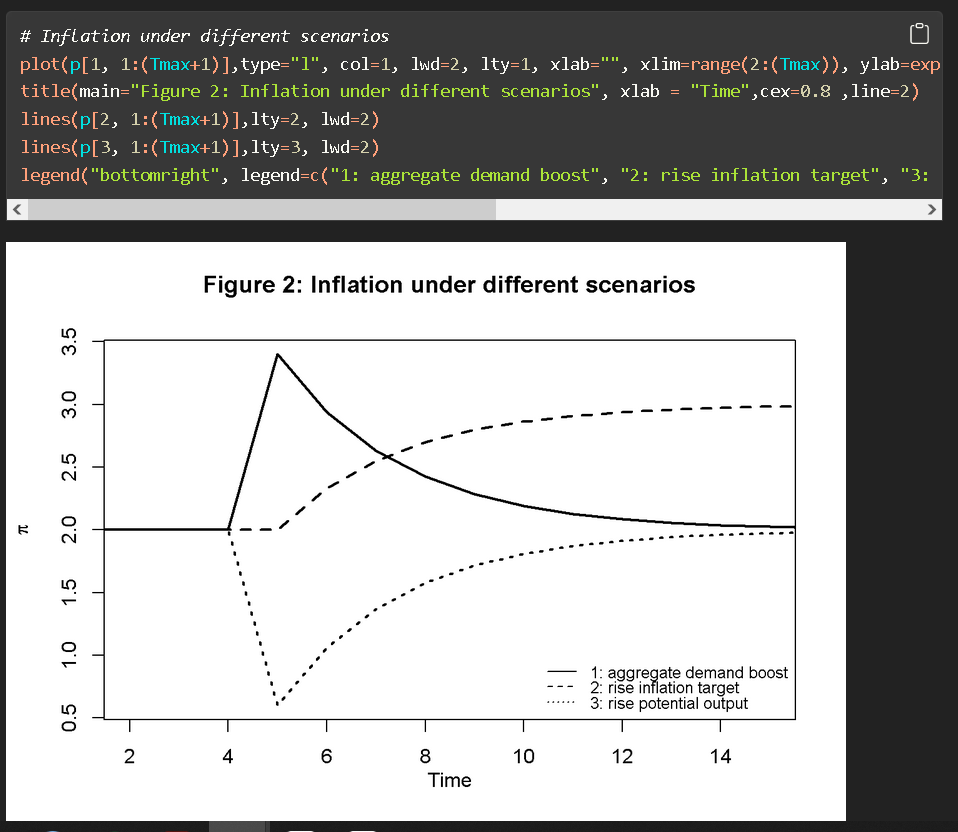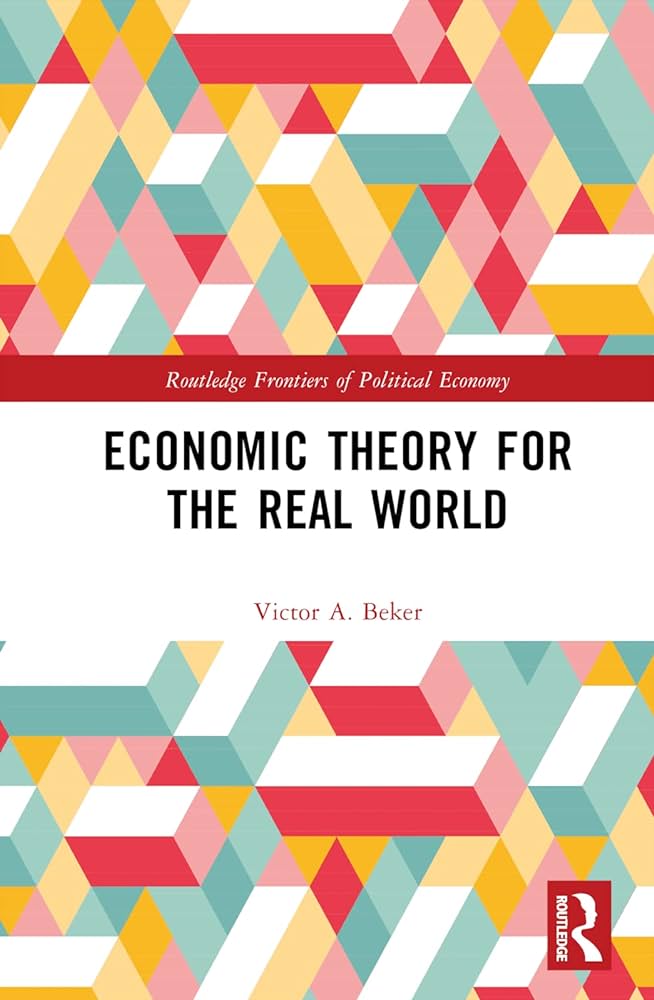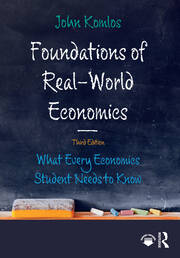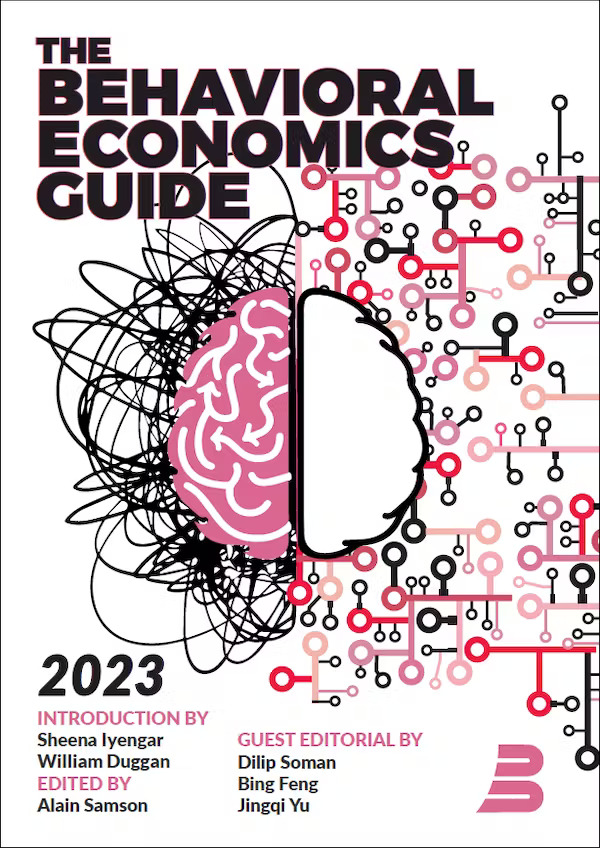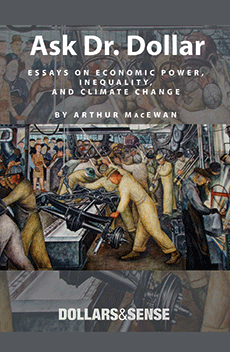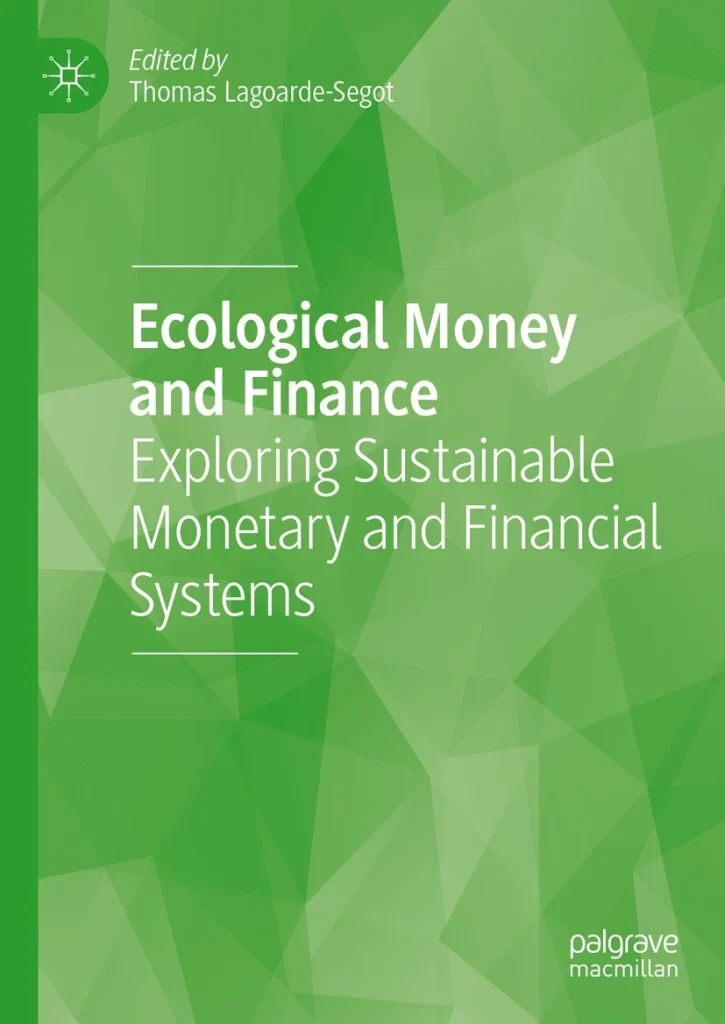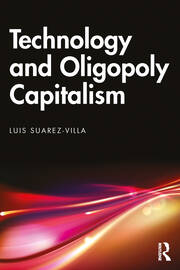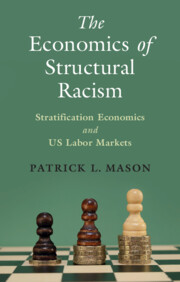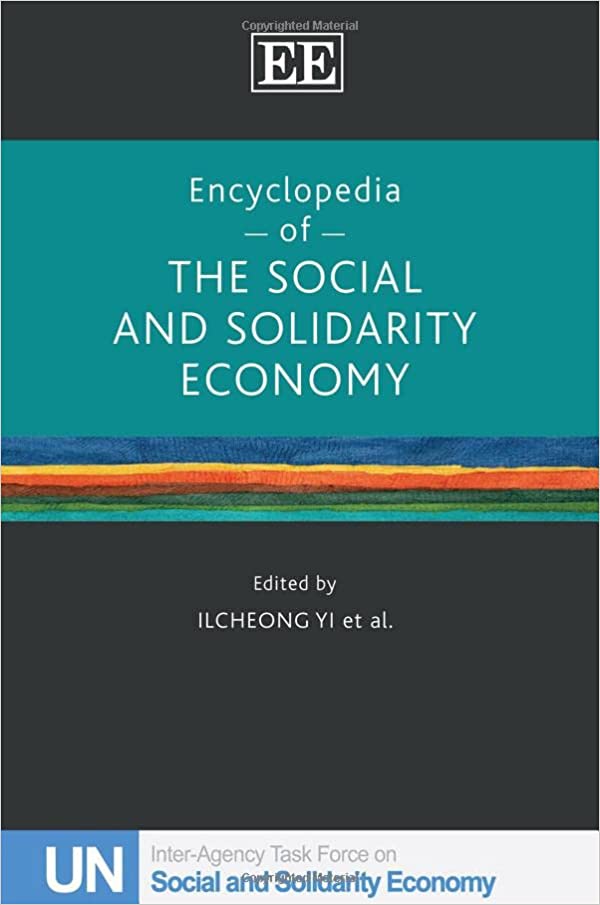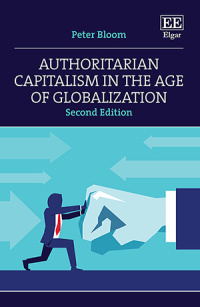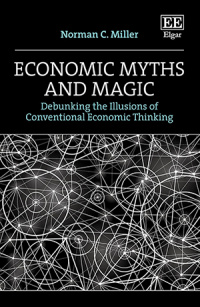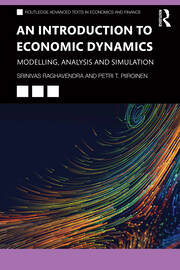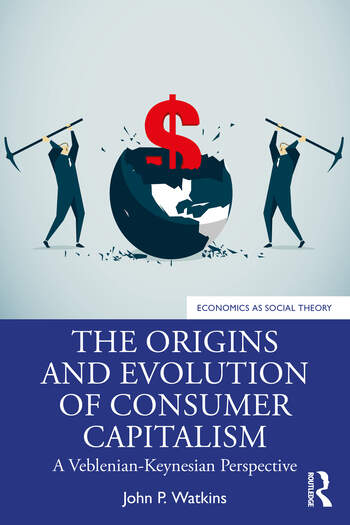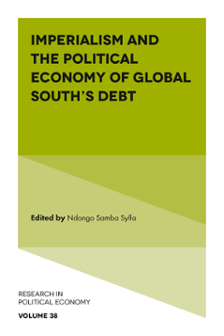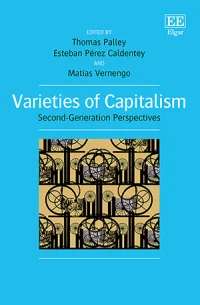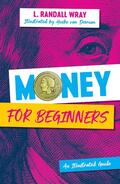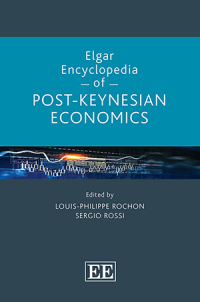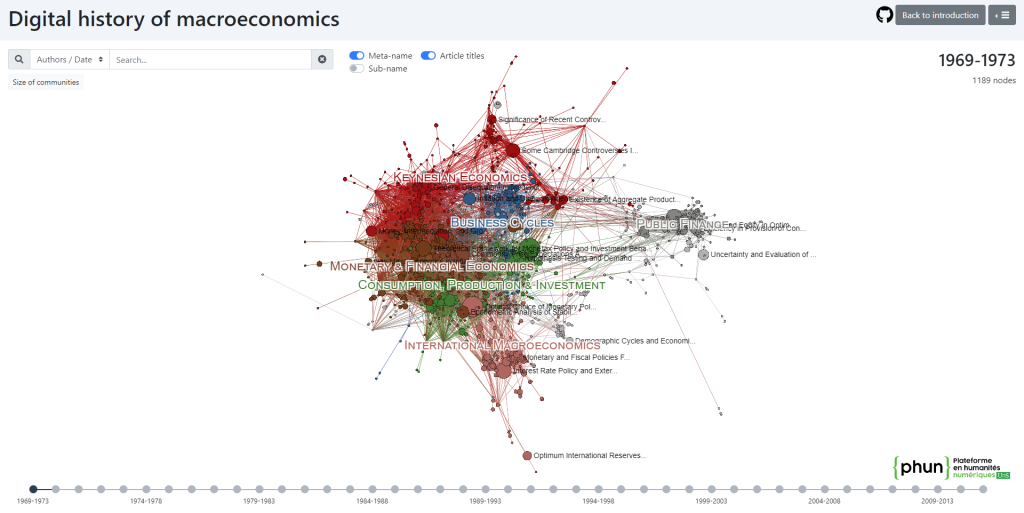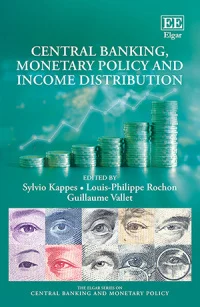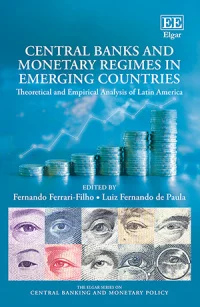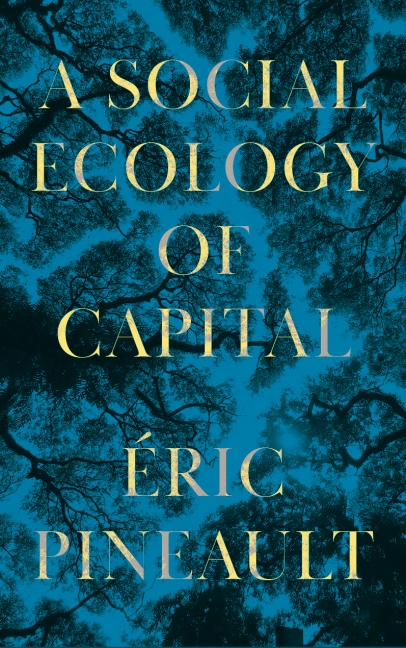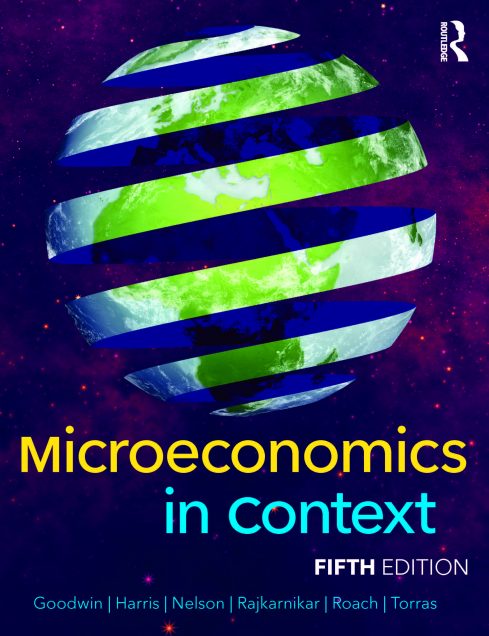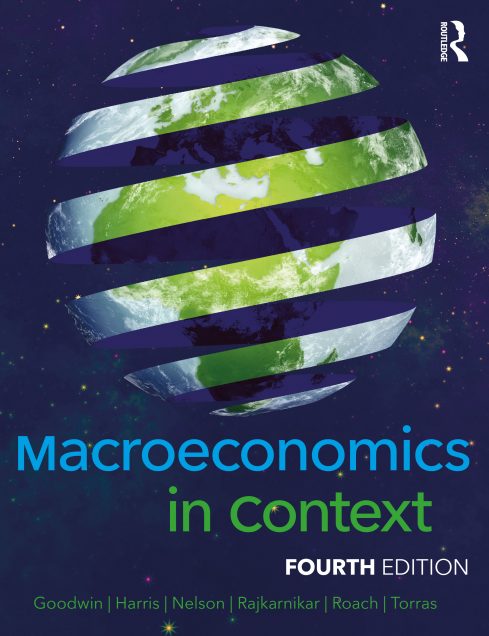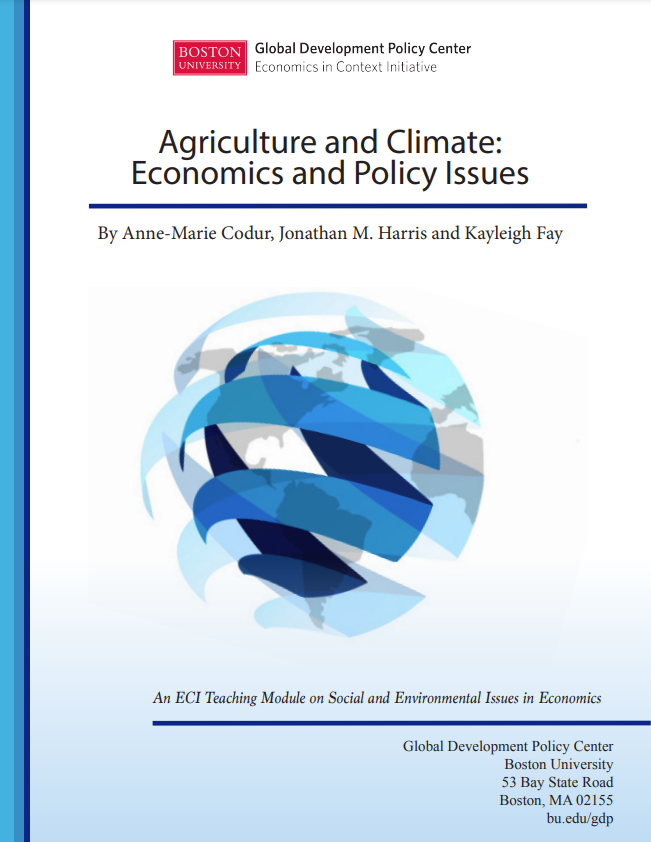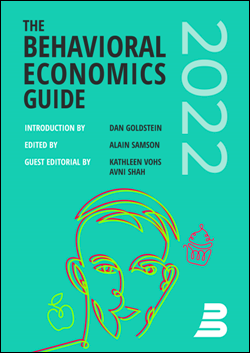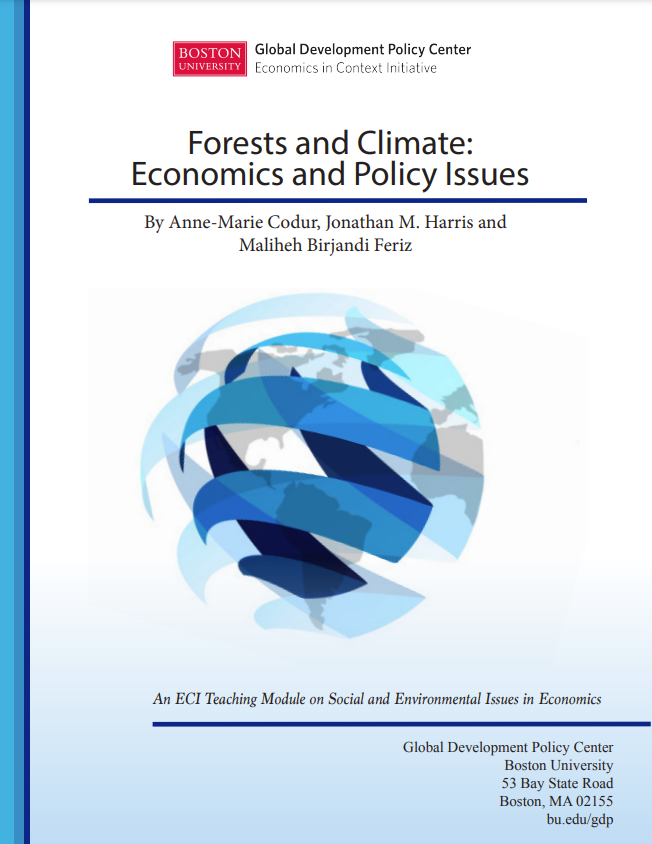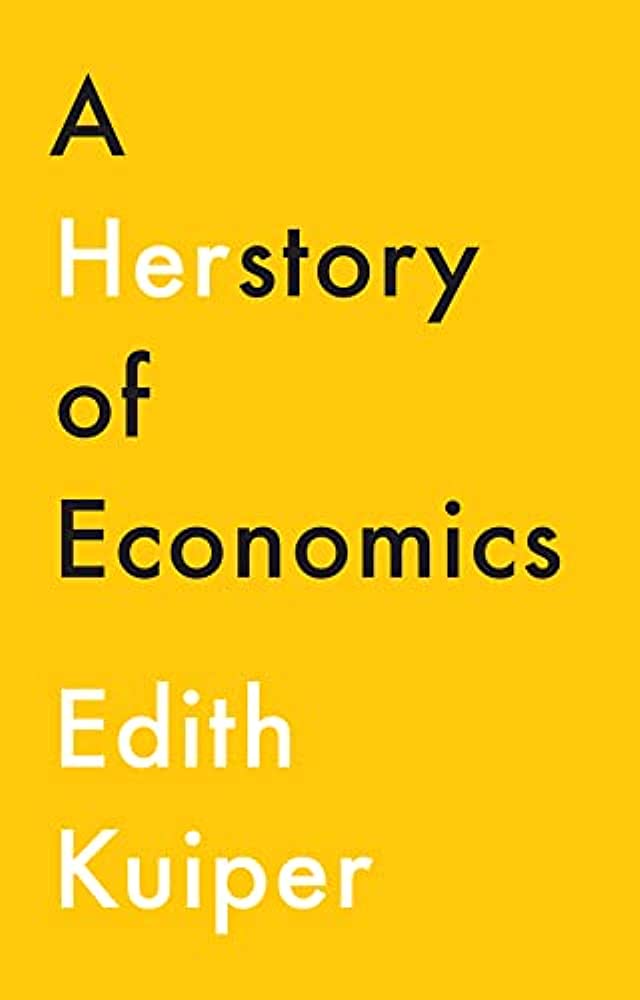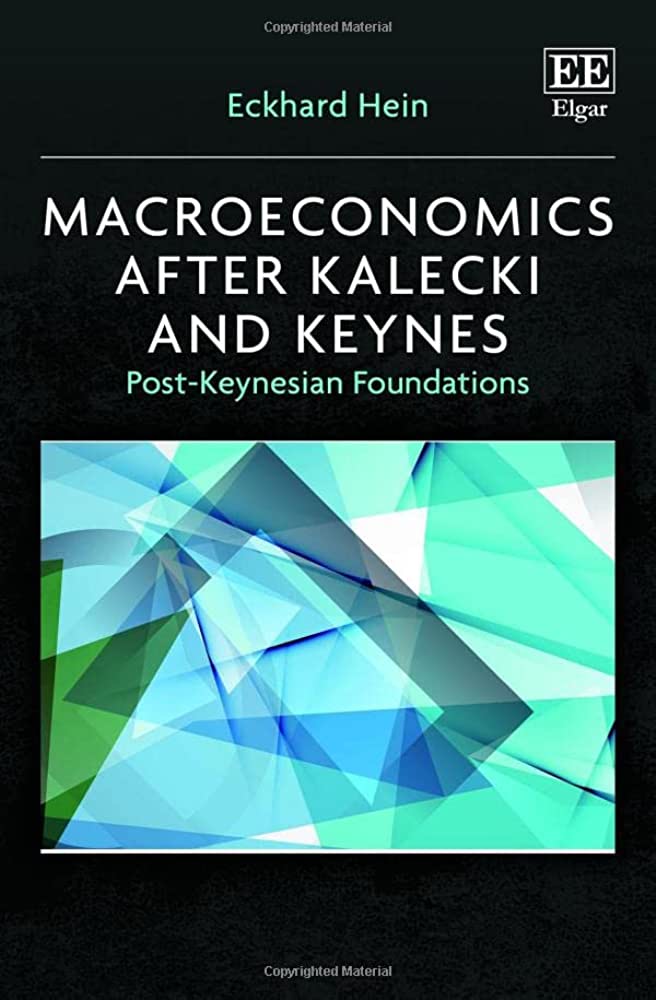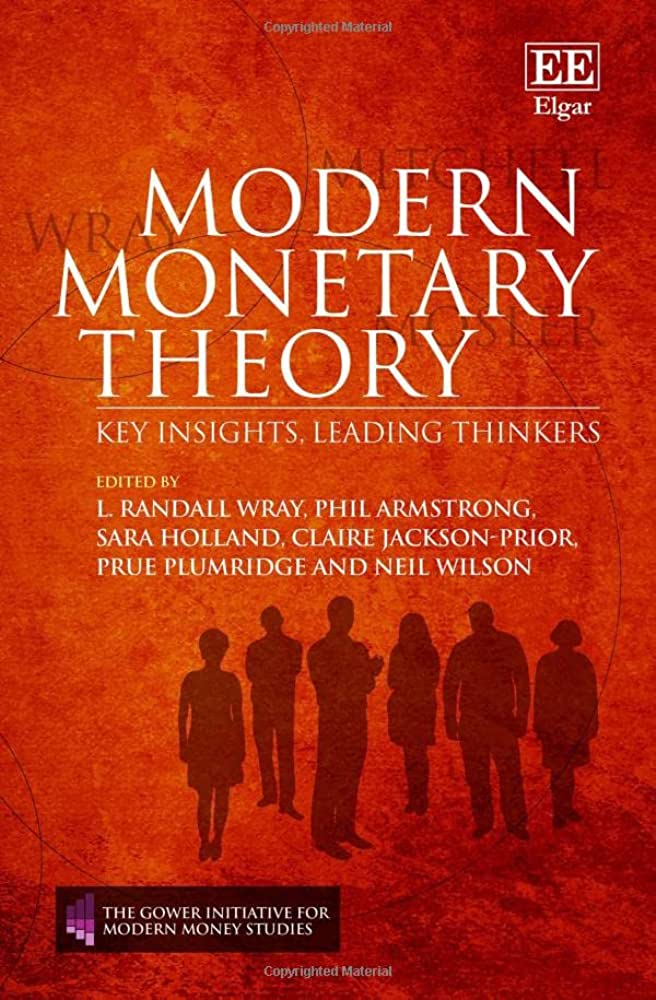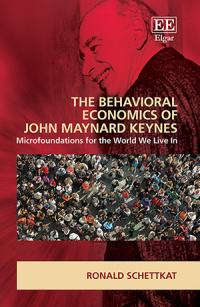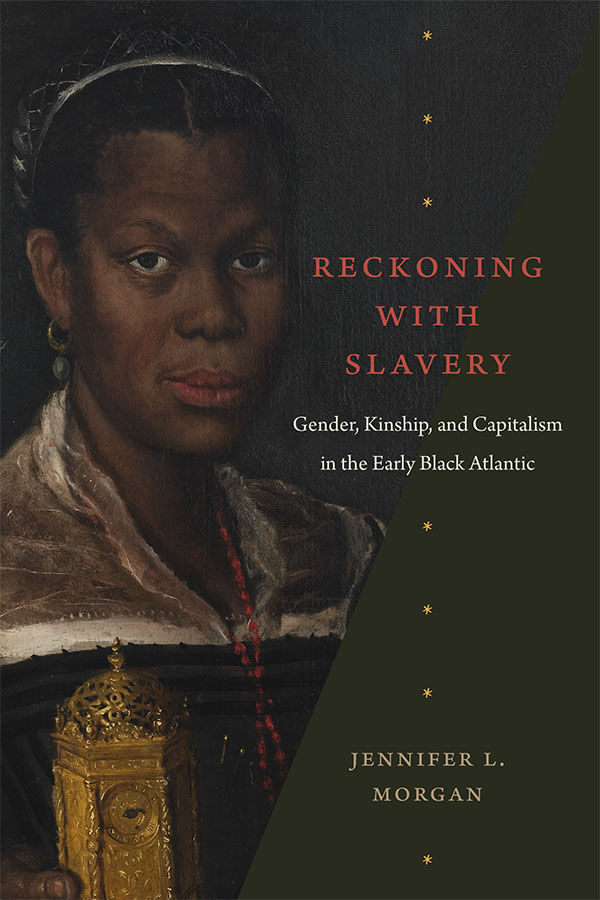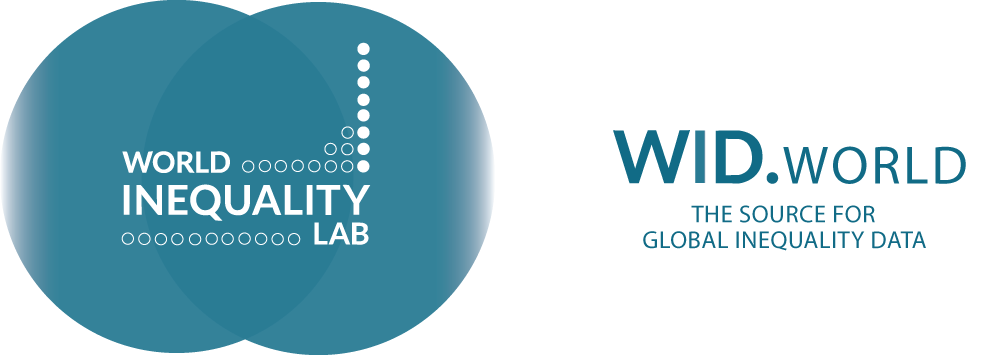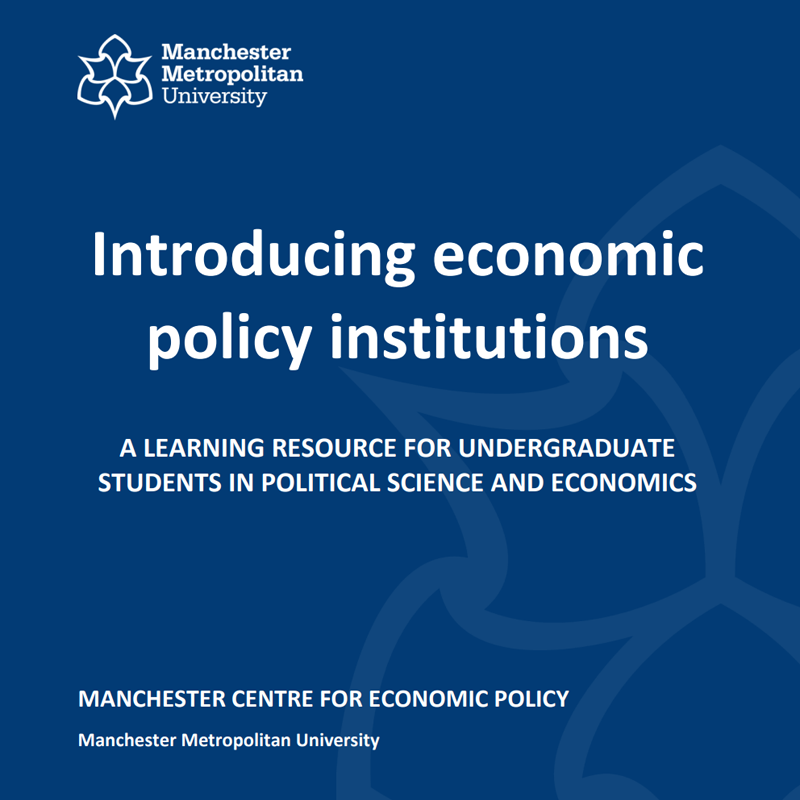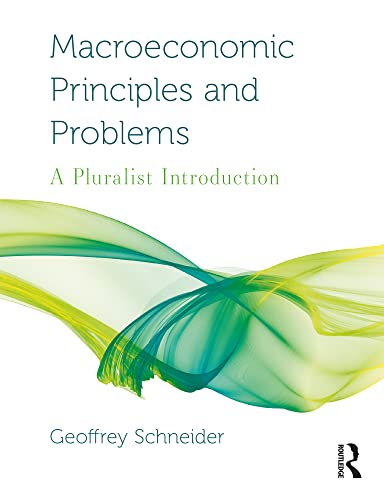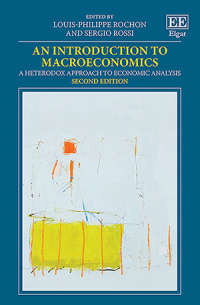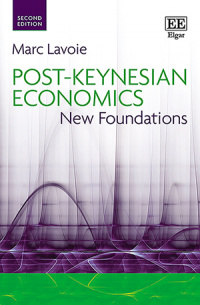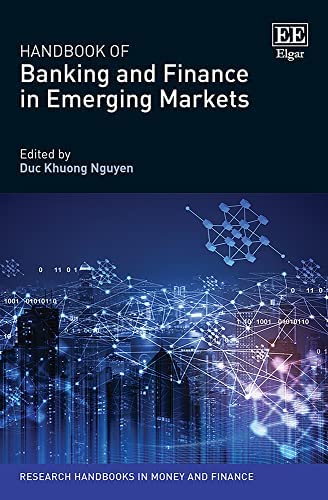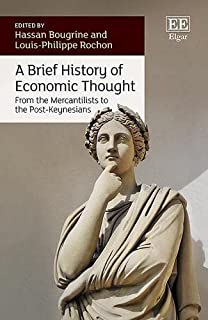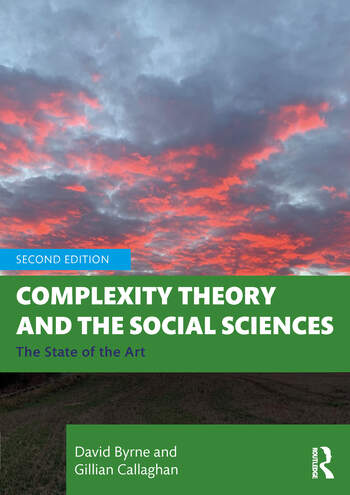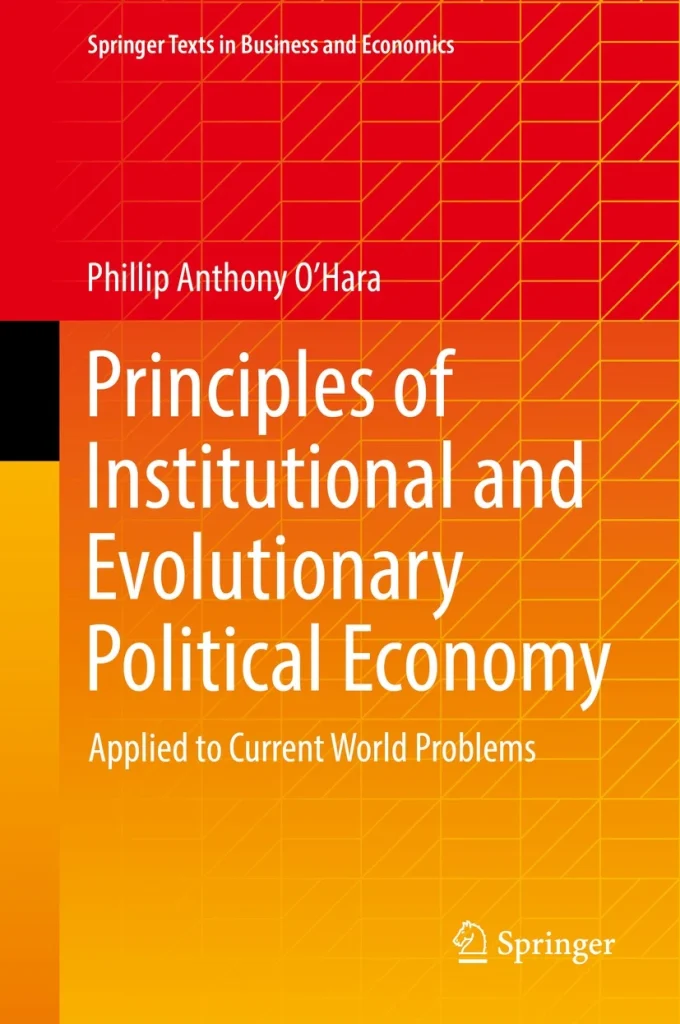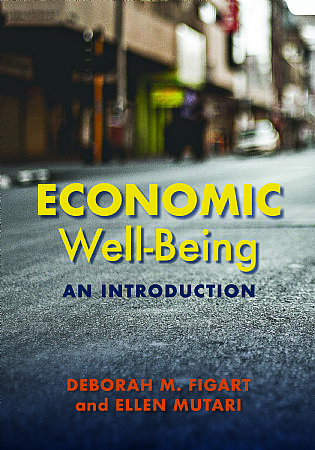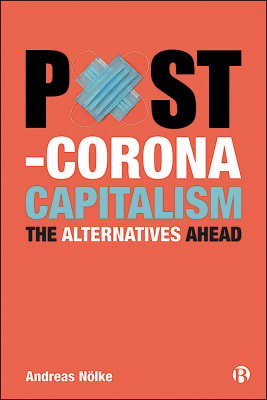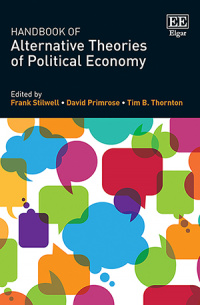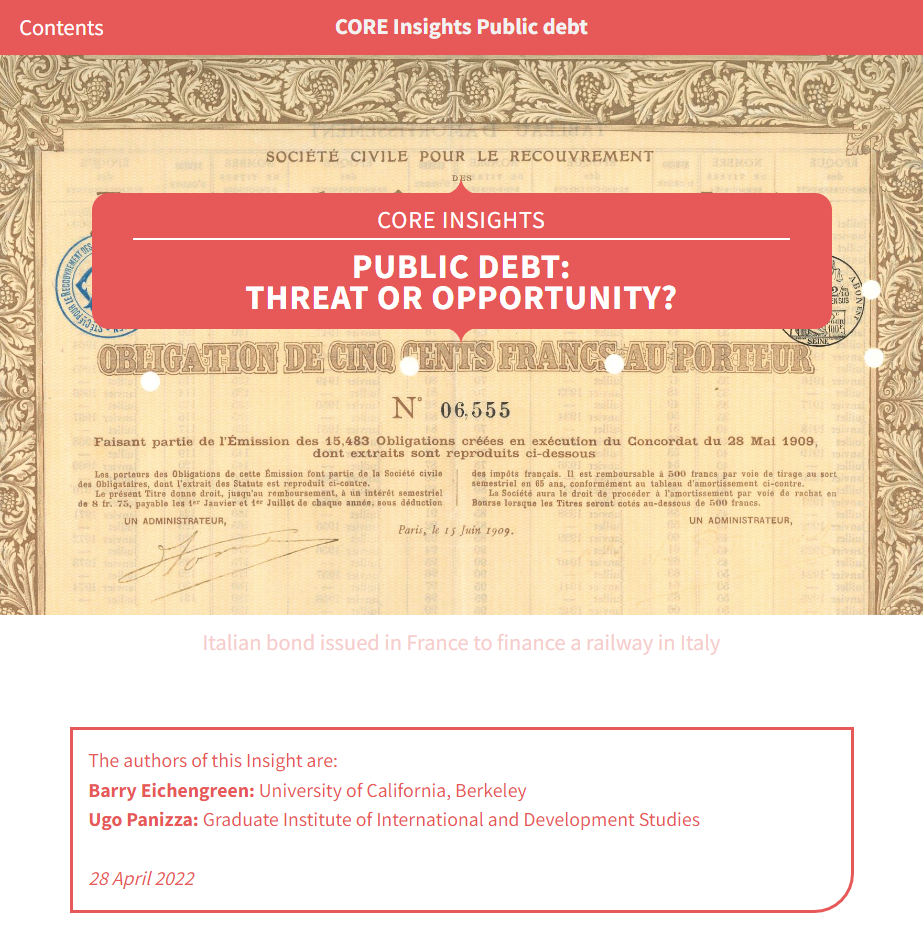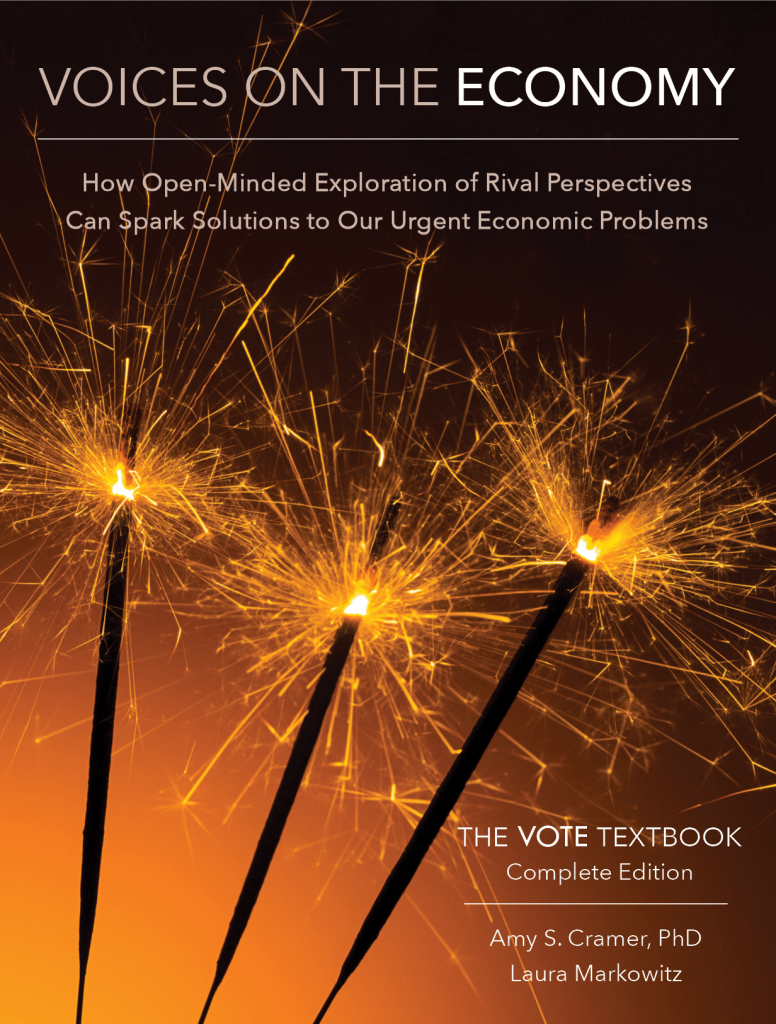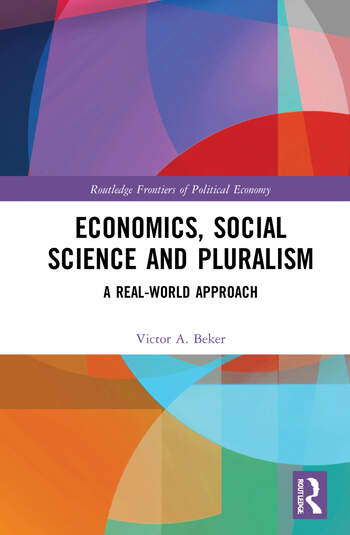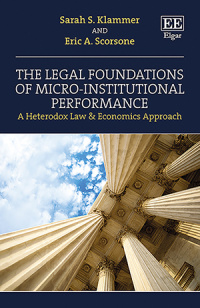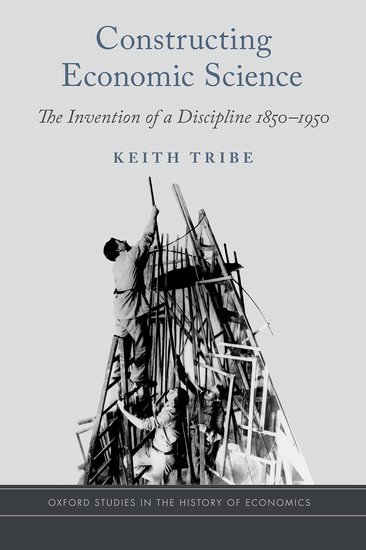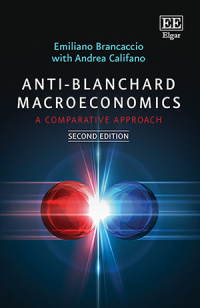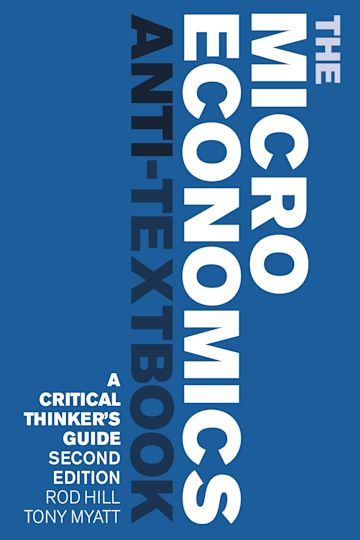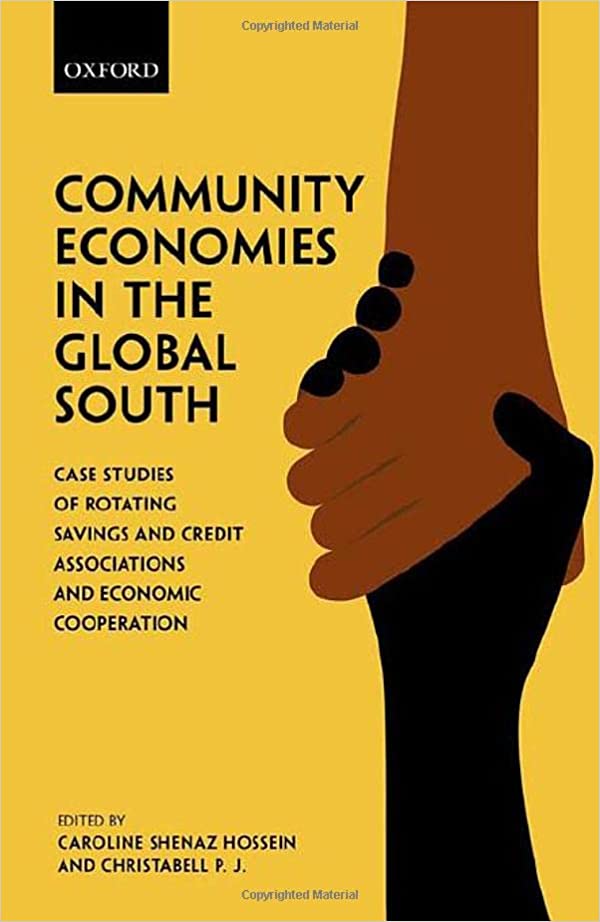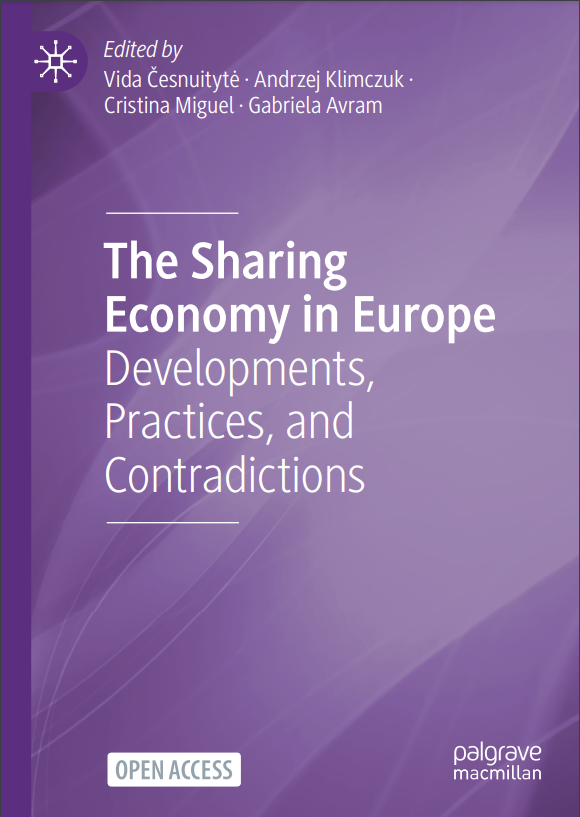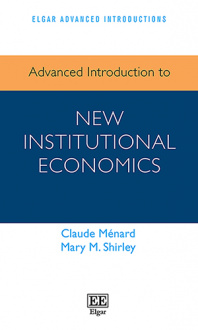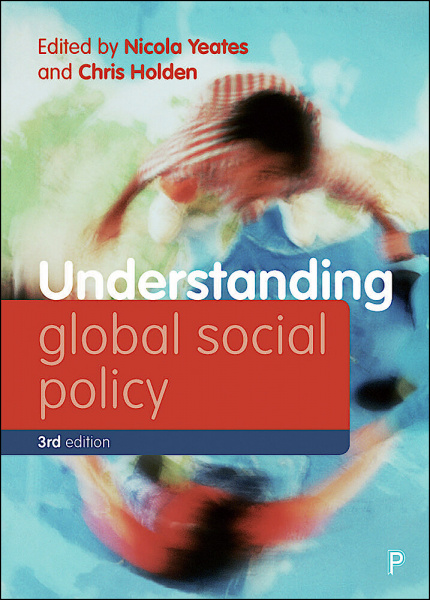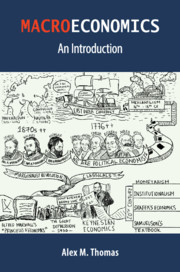For our book we collected all the good teaching materials we could find per building block, topic and theoretical approach. With this we hope to help educators and students in learning about often neglected aspects of economic thinking and knowledge. But this kind of work is luckily never over and finished. Since the publication of our book many useful new teaching materials have been published. Here we provide an overview of new teaching materials. If you notice that we miss anything, please let us know.
Beyond Misbehaving: Changing Universities, Pluralism, and the Evolution of a Heterodox Behavioural Economist
Peter E. Earl
“Beyond Misbehaving is both my intellectual autobiography and a self-help career guide. It provides a deeply introspective tell-all account of a life spent as a non-mainstream economist working in universities in the UK, Australia and New Zealand. It explains how I began to work in the field of behavioural economics around the same time as the 2017 Nobel Laurate, Richard Thaler, but went down a very different, much more radical pathway than he did as a behavioural economist, a pathway that has resulted in an approach that should appeal to many heterodox economists as well as offering wider opportunities for those who have previously known only Thaler-style behavioural economics.”
“Beyond Misbehaving yields many career lessons and will be especially valuable to early-career behavioural and/or heterodox economists who want to understand how, and why, the way that academic career games need to be played has changed over the past half-century. Along the way, it provides a student’s perspective on what it was like to study economics at the University of Cambridge in the 1970s, both as an undergraduate and as a research student. It explores, via my experience over four decades, the challenges of teaching economics in a pluralistic way, how I sought to deal with them, and why they have become increasingly acute. It explores the challenges that research students must be able to deal with and the role that modern PhD management systems play in reducing risks of non-submission or having to revise and resubmit doctoral dissertations, in sharp contrast to how things were when today’s senior academics were early-career researchers. It shares senior-level experience on what heterodox economists need to do to survive and prosper in a world of research audits that favour their mainstream rivals – including the importance of being mindful about the psychology of being a scholar and pursuing promotion.”
Complexity Economics and Sustainable Development: A Computational Framework for Policy Priority Inference
By Omar A. Guerrero and Gonzalo Castañeda
The Sustainable Development Goals are global objectives set by the UN. They cover fundamental issues in development such as poverty, education, economic growth, and climate. Despite growing data across policy dimensions, popular statistical approaches offer limited solutions as these datasets are not big or detailed enough to meet their technical requirements. Complexity Economics and Sustainable Development provides a novel framework to handle these challenging features, suggesting that complexity science, agent-based modelling, and computational social science can overcome these limitations. Building on interdisciplinary socioeconomic theory, it provides a new framework to quantify the link between public expenditure and development while accounting for complex interdependencies and public governance. Accompanied by comprehensive data of worldwide development indicators and open-source code, it provides a detailed construction of the analytic toolkit, familiarising readers with a diverse set of empirical applications and drawing policy implications that are insightful to a diverse readership.
Buddha, Wisdom and Economics: A Contribution to the Art of Happiness
By S. Niggol Seo
In this innovative book, S. Niggol Seo investigates the intrinsic and intriguing relationship between the fundamental teachings of Buddhism and the principles of economics and happiness. Offering a unique perspective on the topic, Seo delves deep into the theoretical foundations of economics and Buddhist teachings, highlighting how these seemingly polar opposite thought systems cross paths.
Seo argues that when it comes to markets, prices, interest rates, growth, poverty, and environmental protection, Buddhism and economics share a number of common economic ideas. Written in an accessible style, Seo presents both a succinct and encompassing description of Buddhism for economists, as well as a comprehensive overview of economics. Buddha, Wisdom and Economics brings together in a balanced and systematic way the common ground between both endeavours. It further examines important topics in the field in light of Buddhist teachings, including economic growth and happiness, poverty and environmental protection.
This thought-provoking book will be an invigorating read for undergraduate and postgraduate economics students and to those with a particular interest in development economics, religion, welfare and happiness studies. It also offers ground-breaking insights for economic policy-makers looking to better understand the intersection between Buddhism and economics.
Empire of Normality Neurodiversity and Capitalism by Robert Chapman
Neurodiversity is on the rise. Awareness and diagnoses have exploded in recent years, but we are still missing a wider understanding of how we got here and why. Beyond simplistic narratives of normativity and difference, this groundbreaking book exposes the very myth of the ‘normal’ brain as a product of intensified capitalism.Exploring the rich histories of the neurodiversity and disability movements, Robert Chapman shows how the rise of capitalism created an ’empire of normality’ that transformed our understanding of the body into that of a productivity machine.
Media, Economy and Society: A Critical Introduction
by Christian Fuchs
This guide to the critical study of the media economy in society teaches students how to critically analyse the political economy of communication and the media. The book introduces a variety of methods and topics, including the political economy of communication in capitalism, media concentration, advertising, global media and transnational media corporations, class relations and working conditions in the capitalist media and communication industry, the Internet and digital media, the information society and digital capitalism, the public sphere, Public Service Media, the Public Service Internet and the political economy of media management. Each chapter features a highly accessible introduction, recommended readings and lots of practical exercises where you will apply the Political Economy approach to concrete examples and cases.
The Routledge Handbook of the Political Economy of Health and Healthcare
By David Primrose, Rodney D. Loeppky, Robin Chang
This handbook provides a comprehensive and critical overview of the gamut of contemporary issues around health and healthcare from a political economy perspective. Its contributions present a unique challenge to prevailing economic accounts of health and healthcare, which narrowly focus on individual behaviour and market processes. Instead, the capacity of the human body to reach its full potential and the ability of society to prevent disease and cure illness are demonstrated to be shaped by a broader array of political economic processes. The material conditions in which societies produce, distribute, exchange, consume, and reproduce – and the operation of power relations therein – influence all elements of human health: from food consumption and workplace safety, to inequality, healthcare and housing, and even the biophysical conditions in which humans live.
Elgar Encyclopedia of Financial Crises
by Sara Hsu
Beginning with the 2008 global crisis in the United States, and particularly after the COVID-19 pandemic shook economies around the world, academics, practitioners, and other experts have become increasingly sensitised to the potential for financial and economic fragility to result in a systemic breakdown. Presenting a synopsis of lessons learnt from financial crises arising out of the 19th, 20th and 21st centuries, each entry examines a unique past issue to help to develop future outcomes, operating as a touchstone for further research.
Monetary Policy Challenges in Latin America
by Fernando Toledo and Louis-Philippe Rochon
This ground-breaking book analyses the severe monetary policy challenges facing Latin American countries. Contributors reflect on how these issues should be addressed by policy-makers, identifying the need for a synergic response from regional central banks.
Arguing that the challenges currently faced by regional central banks are intrinsically related, this book examines the risks generated by an international climate of uncertainty. It explores how to address inflationary pressures, output contraction, external vulnerabilities, tightness in advanced central banks’ monetary policies, nominal dollar appreciation, and falling commodity prices. Chapters focus on key elements of monetary policy, including transmission channels, exchange rates, international reserves, sustainable finance, and income inequality, to give an alternative view on the position of regional central banks in the global financial system.
Monetary Policy Challenges in Latin America will be an invaluable resource for students and scholars of monetary policy, development economics, banking, and political economy. It will also be essential reading for policy-makers seeking new perspectives on monetary policy.
Handbook of Teaching Ethics to Economists: A Plurality of Perspectives
by Ioana Negru,Craig Duckworth, and Imko Meyenburg
Drawing on the knowledge of highly experienced academics, this authoritative Handbook explains how ethics can inform the teaching of economics. It includes state-of-the-art moral theory alongside traditional approaches to emphasise why ethics should be an important consideration for economic practitioners.
The Handbook of Teaching Ethics to Economists keenly demonstrates how economic analysis can reflect implicit moral judgements. Chapters include guidance on course design and lesson content, providing insight into important topics such as ecological and grassroots economics. They offer pedagogical advice alongside philosophical analyses, setting out teaching guidance and significant case-study profiles on key theories, such as Kantian and Aristotelian ethics. Importantly, they reflect on the potential of economics to cause harm and use ethics to mitigate this possibility.
This expansive Handbook will be essential for academics preparing to teach courses relating to ethics and economics. Due to its detailed explanations of the societal role of economics, students of economics and finance will additionally find this Handbook to be incredibly useful.
Handbook of Research on the Global Political Economy of Work by Maurizio Atzeni, Dario Azzellini, Alessandra Mezzadri, Phoebe Moore & Ursula Apitzsch
This ground-breaking Handbook broadens empirical and theoretical understandings of work, work relations, and workers. It advances a global, intersectional labour studies agenda, laying the foundations for the politically emancipatory project of decolonising the political economy of work.
Moving beyond traditional disciplinary boundaries, this Handbook provides a comprehensive account of the relations between different forms of work, exploitation, class configuration and worker resistance. With insights from global experts across the social sciences, it examines changes in technology, geographies of production, and the dynamics of the global capitalist political economy to map modern configurations of work. Using ongoing empirical qualitative research, contributors explore key issues such as capital accumulation, migration, digital work, trade unionism and reproductive labour. There is a particular focus on perspectives from the Global South, with in-depth analyses of class and work in countries and regional economic blocs used to explore the dynamics between the local and the global.
Providing an authoritative overview of traditional and current debates, this Handbook will be an essential resource for students and researchers of political economy, industrial relations and the sociology of work, critical management studies, social movement studies, and development.
Financial Macroeconomics
by Jan A. Kregel & Felipe Rezende
The title of this book may seem to confuse two separate disciplines – finance and macroeconomics. However, it is based on the fact that finance and macroeconomics were integrated, at least in their formative years. It is a natural extension of a line of research that dominated monetary theory in the early part of the 20th century. Economists such as Keynes, Robertson, Hawtrey, Fisher, Hayek and Schumpeter sought to blend the analysis of business cycles with their (often first-hand) experience of money and financial markets. The result was a monetary theory that provided the fertile background to what came to be called macroeconomics. However, in the post-war period, the monetary aspects of this theory dropped out of sight in the neo-classical synthesis and hydraulic Keynesianism. Post-Keynesians such as Davidson and Minsky have done much to try to restore the monetary aspects of the theory, but the other – more technical– aspects of financial analysis have been ignored. Paradoxically, these aspects now form an integral part of the curriculum of finance and business departments and are the tools of the trade in financial analysis. This book aims to show how these tools of financial analysis were initially part of the early investigations of macroeconomics and how they maybe used to provide a realistic analysis of the behavior of modern financial economies.
Explaining the Gender Wage Gap: The Missing Aspects of Discrimination
By Alicja Sielska
This timely book offers an engaging contemporary analysis of research into the gender pay gap while also providing important nuanced observations. It illustrates the variant methodologies that have been employed by researchers who have attempted to elucidate this challenging topic.
Elgar Encyclopedia of Ecological Economics by Emilio Padilla Rosa & Jesús Ramos-Martín
With diverse contributions from over 100 authors around the globe, this comprehensive Encyclopedia summarises the developments of ecological economics from the fundamental contributions to the more recent methodological debates in the field. It provides an expansive list of topics including sustainable development, the limits to growth, agroecology, implications of thermodynamic laws for economics, integrated ecologic-economic modelling, valuation of natural resources and services, and renewable and non-renewable resources management.
Evolutionary Social Theory and Political Economy
Philosophy and Applications
By Clifford S. Poirot Jr.
Evolutionary Social Theory and Political Economy traces the origins, extension, marginalization and revival of evolutionary approaches to social theory from the Enlightenment through the beginning of the 21st century. It demonstrates how changes in understandings of social evolution corresponded to changes in definitions of Political Economy and how both reflected changes in the Philosophy of Science. This book is written for students and researchers alike in all the social sciences. Economists will benefit from understanding how ideas about evolution in Economics corresponded to ideas about evolution in other social sciences, and Social Scientists outside of Economics will benefit from understanding how Economics has related to their discipline.
The Routledge Handbook of Feminist Economics by Günseli Berik and Ebru Kongar
The Routledge Handbook of Feminist Economics presents a comprehensive overview of the contributions of feminist economics to the discipline of economics and beyond.
Each chapter situates the topic within the history of the field, reflects upon current debates, and looks forward to identify cutting-edge research. Consistent with feminist economics’ goal of strong objectivity, this Handbook compiles contributions from different traditions in feminist economics (including but not limited to Marxian political economy, institutionalist economics, ecological economics and neoclassical economics) and from different disciplines (such as economics, philosophy and political science).
The Handbook delineates the social provisioning methodology and highlights its insights for the development of feminist economics. The contributors are a diverse mix of established and rising scholars of feminist economics from around the globe who skilfully frame the current state and future direction of feminist economic scholarship.
DIY Macroeconomic Model Simulation Platform by Karsten Kohler and Franz Prante
The new online platform ‚DIY Macroeconomic Model Simulation‘ provides an open-source code repository and online script for macroeconomic model simulation. It follows a “do-it-yourself” (DIY) approach, empowering users to numerically simulate key macroeconomic models on their own using the programming language R.
The platform follows a pluralistic approach by covering an array of macroeconomic models, including canonical textbook models, models from different economic paradigms, and seminal models from the history of economic thought. It bridges a gap between intermediate and advanced level macroeconomics by providing detailed yet accessible treatments of seminal macroeconomic models.
The Waterworks of Money
Although money plays a key role in our lives, the workings of our monetary system are a mystery to most of us. ‘The Waterworks of Money’ by cartographer Carlijn Kingma is an attempt to demystify the world of big finance. It visualizes the flow of money through our society, its hidden power made manifest.
If you see money as water, our monetary system is the irrigation system that waters the economy. The better the flow, the more prosperous society will be. Just as water makes crops thrive, so money sets the economy in motion. Or at least that’s the idea. In reality, inequality is growing in many countries and people are dealing with a ‘cost of living crisis’. Meanwhile, the progress with making our economies sustainable is stalling, and financial instability remains an ongoing threat. These problems cannot be seen in isolation from the architecture of our money system. If we truly want to tackle them, we will have to address the design flaws of our current money system.
After the Great Financial Crisis economic theory was criticized from both outside and inside the discipline for being incapable of explaining a crisis of such magnitude. Slowly, new strands of economic thought are developing, to replace the old-fashioned neoclassical economic theory, which are better suited to help understand the real-world economy. This book explores the key tenets and applications of these. This book is essential reading for anyone seeking a deeper understanding of the economy, including readers from economics and across the social sciences.
Special offer: Free first chapter of Foundations of Real-World Economics: What Every Economics Student Needs to Know (third edition) by John Komlos
Foundations of Real-World Economics demonstrates how misleading it can be to apply oversimplified models of perfect competition to the real world. Bringing together the work of key scholars like Kahneman, Minsky, and Schumpeter, this textbook takes into consideration the inefficiencies that arise when the perfectly competitive model is applied to the real world dominated by multinational oligopolies. The third edition has been updated throughout, bringing in new material on the financial crises, the rise of populism, racism, inequality, climate change and the COVID-19 pandemic.
We are very grateful that John Komlos made us a special offer giving the first chapter of the book for free for all those following the Centre for Economy Studies. Get the first chapter for free here.
Behavioral Economics Guide 2023 – 10th Anniversary Edition
This year’s 10th anniversary edition features an introduction by Sheena Iyengar and William Duggan on Creative Choices, a guest editorial by Dilip Soman, Bing Feng and Jingqi Yu on The Between Times of Applied Behavioral Science, as well as many insightful contributions by practitioners from around the world.
Download the guide here.
Free Spanish book:
Economía en crisis: La enseñanza de la economía en Latinoamérica y los límites de la teoría ortooxa edited by Andrés Lambertini and Ignacio Silva Neira
Economy in crisis: The teaching of economics in Latin America and the limits of orthodox theory considers the particular economic, political, and social environments of countries within Latin America and looks at how one of the causes of the perpetuation of the neoliberal paradigm is the teaching of economics.
The book explores the experience of Argentina, Brazil, Chile, Colombia, México, and Uruguay, providing a critical reflection on the economic teaching, and the historical context when the neoclassical paradigm was implemented. Guest economists participated in this book: Matías Vernengo and Esteban Pérez wrote the introduction and Karina Focinito has the conclusion chapter. Are the neoliberal policies reinforced by what the economist is learning? What are the opportunities to move to a new paradigm? This book aims to promote this discussion.
Get the book for free here.
Ask Dr. Dollar: Essays on Economic Power, Inequality, and Climate Change by Arthur MacEwan
Over the last 25 years, Arthur MacEwan (a.k.a. “Dr. Dollar”) has provided Dollars & Sense readers with analyses, information, and arguments about the U.S. and world economies to better equip them to bring about progressive social change. This effort, embodied in the articles in this book, represents what has been the mission of Dollars & Sense, the leading magazine of popular economics, since its founding in 1974. The well-researched, clearly written articles in this book provide highly accessible analysis of a range of issues, including tax and financial policies, inequality, and the environment and climate change, as well as the global economy, finance, and education.
Free articles, chapters on “Decolonization”
Bristol University Press Digital put together a collection of free articles, chapters and books. It includes chapters on decolonising consumption, climate colonialism, Colonial and Indigenous Origins of Comparative Development, social policies driven by labour scarcity, forced migration, and meritocracy.
Macroeconomics for Development: Prognosis and Prospects By Raghbendra Jha
Providing a broad overview of the impact of COVID-19 on economic development, this timely book closely examines the macroeconomic aspects of economic development and the design of monetary policies including under extreme crises.
Raghbendra Jha expertly introduces the subject, highlighting the links between economic growth and macroeconomic stability and illustrates a snapshot of economic development. Thoughtful discussions on measurements and limitations of the Human Development Index as well as the role of institutions and the design for monetary policy are also thoroughly reviewed. Furthermore, the book considers the open economy aspects of economic development and the challenges experienced following the global COVID-19 pandemic and beyond.
The insightful overview of this evolving subject will be crucial reading for scholars interested in economic development, undergraduate and graduate students of economics, as well as economics scholars more broadly. Policymakers, both nationally and internationally, will find the discussions surrounding the design of monetary policies informative and illuminating.
Ecological Money and Finance: Exploring Sustainable Monetary and Finance Systems by Thomas Lagoarde-Segot
This textbook provides a detailed overview of ecological money and finance. The functioning and development of the monetary and financial systems are analysed in relation to sustainability constraints to highlight the actions required to meet the 2030 Sustainable Development Agenda. Empirical case studies are utilized to give insight into the failure of the traditional financial system, with ways in which they can be overcome also considered. This book adopts a pluralist perspective informed by Post-Keynesian Economics, critical management studies and ecological economics to revisit the foundations of financial and monetary economics from a sustainability perspective, and to examine the economic policies and financial instruments that can be used to combat ecological challenges. It will be relevant to students and researchers interested in ecological economics and sustainable finance.
Technology and Oligopoly Capitalism By Luis Suarez-Villa
Technology and Oligopoly Capitalism’s critical, multidisciplinary perspective provides a systemic vision of how oligopolistic power shapes these forces and phenomena. An inclusive approach spans the spectrum of technology oligopolies and the ways in which they deploy their power. Numerous, previously unpublished ideas expand the repertory of established work on the topics covered, advancing explanatory quality—to elucidate how and why technology oligopolies operate as they do, the dysfunctions that accompany their power, and their effects on society and nature. This book has no peers in the literature, in its scope, the unprecedented amount and diversity of documentation, the breadth of concepts, and the vast number of examples it provides. Its premises deserve to be taken into account by every student, researcher, policymaker, and author interested in the socioeconomic and political dimensions of technology in America.
The Economics of Structural Racism: Stratification Economics and US Labor Markets by Patrick L. Mason
This extensive and comprehensive book tracks persistent racial disparities in the US across multiple regimes of structural racism. It begins with an examination of the economics of racial identity, mechanisms of stratification, and regimes of structural racism. It analyzes trends in racial inequality in education and changes in family structure since the demise of Jim Crow. The book also examines generational trends in income, wealth, and employment for families and individuals, by race, gender, and national region. It explores economic differences among African Americans, by region, ethnicity, nativity, gender, and racial identity. Finally, the book provides a theoretical analysis of structural racism, productivity, and wages, with a special focus on the role of managers and instrumental discrimination inside the firm. The book concludes with an investigation of instrumental discrimination, hate crimes, the criminal legal system, and the impact of mass incarceration on family structure and economic inequality.
On Market Socialism: New Directions in Modern Economics series by Bruno Jossa
Bruno Jossa expertly illustrates that the creation of a system of cooperative firms is tantamount to a revolution giving rise to a new production mode capable of reversing the existing relationship between capital and labour. The book also demonstrates a revolution enacted by peaceful and democratic means in order for worker-managed organisations to outnumber capitalistic ones.
Encyclopedia of the Social and Solidarity Economy Edited by Ilcheong Yi
This is an open access title available under the terms of a CC BY-NC-ND 4.0 License. It is free to read, download and share on Elgaronline.com. This work has been funded by the Government of the Grand Duchy of Luxembourg Edward Elgar Publishing Ltd in partnership with United Nations Inter-Agency Task Force on SSE (UNTFSSE) The Encyclopedia of the Social and Solidarity Economy is a comprehensive reference text that explores how the social and solidarity economy (SSE) plays a significant role in creating and developing economic activities in alternative ways. In contrast to processes involving commodification, commercialisation, bureaucratisation and corporatisation, the SSE reasserts the place of ethics, social well-being and democratic decision-making in economic activities and governance. Identifying and analysing a myriad of issues and topics associated with the SSE, the Encyclopedia broadens the knowledge base of diverse actors of the SSE, including practitioners, activists and policymakers.
Authoritarian Capitalism in the Age of Globalization By Peter Bloom
Authoritarian capitalism is rapidly evolving, intensifying and spreading across the globe. This updated second edition book demonstrates that the recent resurgence of fascism and repressive democracies are connected to and symptomatic of the fundamental authoritarianism of capitalism.
Economic Myths and Magic: Debunking the Illusions of Conventional Economic Thinking
By Norman C. Miller
This insightful and comprehensive book uses theoretical and empirical studies to debunk contemporary illusions about the functionality of economies and examines the phenomena of economic magic and economic black magic. Norman C. Miller considers 11 economic myths, three of which are the theory that excessive imports reduce employment as firms are forced to downsize or shut down, that a more equal distribution of income kills incentives and reduces economic growth rates and the myth that a higher minimum wage always generates a net decrease in employment.
An Introduction to Economic Dynamics: Modelling, Analysis and Simulation by Srinivas Raghavendra and Petri T. Piiroinen
This book goes beyond the often-limited scope of other texts on economic models, which have largely focused on elucidating static equilibrium models. Comparative static analysis inhibits students from asking how the equilibrium position is achieved from an initial out-of-equilibrium position and limits their understanding of the dynamics that underlie such analysis. In this textbook, readers are introduced to ten well-established macroeconomic models – including Keynesian multiplier models, Samuelson’s multiplier and Solow’s growth model – and guided through the dynamical systems behind each model. Every chapter begins with an overview of the economic problem which the model is designed to help solve followed by an explanation of the mathematics of the model. Solutions are provided using simulation and visualisation techniques in MATLAB®, which are interwoven organically with the analysis and are introduced in a step-by-step fashion to guide the reader along the way. Appendices provide an introduction to MATLAB® along with all the necessary codes.
(Mis)managing Macroprudential Expectations: How Central Banks Govern Financial and Climate Tail Risks by John Hogan
Using a range of calculative devices, (Mis)managing Macroprudential Expectations explores the methods used by central banks to predict and govern the tail risks that could impact financial stability. Through an in-depth case study, the book utilises empirically-informed theoretical analysis to capture these low-probability and high-impact events, and offers a novel conceptualisation of the role of risk modelling within the macroprudential policy agenda.
The Origins and Evolution of Consumer Capitalism A Veblenian-Keynesian Perspective By John P. Watkins
Consumer capitalism arose with the second industrial revolution, the application of continuous-mass production to consumer goods during the late nineteenth and early twentieth centuries. This book adopts a Veblenian, Keynesian viewpoint, presenting an evolutionary view of consumption combined with the need to increase demand to match increases in production. The book traces the history of consumer capitalism, examining the paradox posed by applying continuous-mass production to produce armaments for dynastic ambitions versus consumer goods for the masses, manifesting itself in the world wars of the twentieth century.
Multiple paradoxes at the heart of the story address booms leading to busts, over-producing countries in Asia relying on over-consuming countries in the West, and the expansion of demand depending on increasingly inventive ways of liquefying assets, in light of stagnant incomes. The book persuasively argues that these paradoxes result from capitalism’s incessant drive to accumulate capital, fostering conflict, crises, and depression. The latest paradox results from the impact of continuous-mass production on the environment, manifesting itself as the Darwinian dilemma. The dilemma stems from human beings largely winning the struggle for existence and, in the process, possibly making the earth uninhabitable, at least for humans.
Imperialism and the Political Economy of Global South’s Debt by Ndongo Sambaylla
The Global South, as a geo-historical concept, occupies in the age of neoliberal globalization the intellectual space opened up during the Cold War by the concept of the Third World. Like its predecessor, the Global South connects Latin America, the Caribbean, Asia, Africa, and Oceania as a set of territories that share characteristics pertaining to history (former European colonies/victims of imperialism), international law (countries that are international norm-takers rather than international norm-producers), economic status (nonindustrialized or late industrialized countries), knowledge production (marginalized and distorted subjectivities of Western-centric epistemology), geopolitics (dominated countries that try to challenge the world system), etc. In common academic usage, the concept refers to empirical sets that may differ according to the themes studied, the statistical sources used, etc.
Among the questions addressed in this volume: How can we explain debt cycles in the South? In what ways are they indicative of the subordinate economic and monetary status of the Southern countries, or even of the particular constraints imposed on them by economic, monetary, and financial order? In what way does foreign currency debt constitute an instrument of imperialist domination? What is the role of the ruling classes of the South in the persistence of this pattern? How true is the view that China is practicing a “debt trap diplomacy” to loot Southern countries? What are the implications of creditors’ view on debt sustainability on the sustainability of social reproduction and the environment? Why have repeated calls for an international mechanism to restructure sovereign debts not yet been successful? What alternatives can be considered in the absence of such a mechanism? More importantly, what practical measures could help turn the page on debt crises in the Global South countries and rid them of the iron fist of their creditors?
The contributions in this volume allow us to consider the external debt of Global South countries as a legacy of imperialism in its colonial phase (visible through the longevity of legal structures of colonial origins and the dependence on exports of primary and low wage-based products), the ongoing outcome of a global economic, monetary and financial order that constrains their autonomous development, and an instrument of imperialist domination that makes it possible to shape their economic policies according to the requirements of core countries and their capitalist interests. Using various theoretical lenses, Imperialism and the Political Economy of Global South’s Debt critically engages with policy proposals to overcome the structural conditions that create the enduring foreign debt burden and its long trail of avoidable human sufferings.
Varieties of Capitalism: Second-Generation Perspectives by Thomas Palley, Esteban Pérez Caldentey, and Matías Vernengo
Over the past twenty years there has emerged a compelling new discourse on varieties of capitalism. That discourse has an appealing common sense which challenges the view there is no alternative to free market capitalism. The initial view had a microeconomic focus that made firms the fulcrum of analysis. It distinguished between liberal market and coordinated market economies. Subsequently, there has emerged a second-generation literature which adopts a macroeconomic perspective that emphasizes differences in drivers of growth. This book provides a collection of essays that engage those second-generation concerns and questions.
Money for Beginners: An Illustrated Guide by Randall Wray and Heske van Doornen
Money is mysterious. We love it, we hate it, but few people can tell you what the heck it really is.
This book will help you understand both the way money works and how to leverage its power. The authors take you on an illuminating journey from your piggy bank to the Federal Reserve with no pesky jargon or complex math.
Once you see money clearly, life will never be the same. You will know what really goes on in banks and what the cash in your wallet represents. You will know how government really spends and why it cannot run out of money.
You will know what money can actually do — and how we can make it work for us.
Foundations of Real-World Economics (3rd Edition) by John Komlos
The book demonstrates how misleading it can be to apply oversimplified models of perfect competition to the real world. The math works well on college blackboards but not so well on the Main Streets of America.
This volume explores the realities of oligopolies, the real impact of the minimum wage, the double-edged sword of free trade, and other ways in which powerful institutions cause distortions in mainstream models.
Bringing together the work of key scholars like Kahneman, Minsky, and Schumpeter, this textbook takes into consideration the inefficiencies that arise when the perfectly competitive model is applied to the real world dominated by multinational oligopolies. The third edition has been updated throughout, bringing in new material on the financial crises, the rise of populism, racism, inequality, climate change, and the Covid-19 pandemic.
Elgar Encyclopedia of Post-Keynesian Economics by Louis-Philippe Rochon and Sergio Rossi
This Encyclopedia is an invaluable reference book for post-Keynesian and heterodox economics. It consists of 300 entries, written by 180 different authors. The volume includes entries on key concepts of interest to post-Keynesians as well as descriptions of some of the seminal books in the post-Keynesian tradition.
It will interest both students and scholars of heterodox economics, as well as policy makers around the world looking for a better alternative to mainstream economic policies at national and international levels in the aftermath of the global financial crisis that burst in 2008 and the COVID-19 pandemic crisis that began in 2020.
Finance Capitalism and Income Inequality in the Contemporary Global Economy: A Comparative Study of the USA, South Korea, Argentina and Sweden by Kuat B. Akizhanov
This book explores the causes of rising income inequality within industrialised, developing, and emerging economies. The development of finance capitalism over the last 40 years is charted to highlight how the neoliberal restructuring of national and global economies has driven income inequality. With case studies from the USA, South Korea, Argentina, and Sweden, a comparative analysis is presented to reveal how financialisation facilitates uneven capital accumulation and generates conditions that increase income inequality.
This book aims to outline an analytical framework for a financialisation-induced income inequality nexus. It will be relevant to students and researchers interested in the political economy and financial economics.
Digital history of macroeconomics by Aurélien Goutsmedt and Alexandre Truc
This interactive website on the history of macroeconomics presents the bibliographic coupling networks of macroeconomics publications for different periods of time.
The nodes of the networks are articles with a macroeconomic JEL code. Articles are linked according to the number of references they share in common.
Central Banking, Monetary Policy and Income Distribution by Sylvio Kappes, Louis-Philippe Rochon and Guillaume Vallet
Part of The Elgar Series on Central Banking and Monetary Policy, this book explores the relationship between central banking, monetary policy and income distribution. The usual central bank mandate – that of exclusively fighting inflation – is being increasingly questioned by policymakers and academics. Many countries are finding that there is a need for broader mandates that will have an impact on economic activity, unemployment and other economic issues.
The chapters present a multitude of theoretical views on this topic, from classical and Marxist views to mainstream and post-Keynesian approaches. They consider the democratic aspects of central banking, critically assess the distributional outcomes of inflation targeting regimes and explore policymaking implications.
Policy makers, academics and the financial press will appreciate the relevance of the material and state of the art discussions featured in Central Banking, Monetary Policy and Income Distribution.
Central Banks and Monetary Regimes in Emerging Countries Theoretical and Empirical Analysis of Latin America By Fernando Ferrari-Filho, Luiz Fernando de Paula
Responding to global events, including the international financial crisis (IFC) and the COVID-19 pandemic, central banks and the monetary regimes in many Latin American countries responded with actions to mitigate the worst impacts. The authors in this book focus on the recent trends of monetary policy in Latin America and analyze how the actions that were taken have affected the economic performance of these countries.
The book is composed of 11 chapters that analyze, theoretically and empirically, the central banks’ actions and the monetary regimes of the following countries: Argentina, Brazil, Chile, Colombia, Mexico, Peru, and Uruguay. As most of these countries implemented inflation-targeting regimes in the 1990s and 2000s, a special focus will be given on these experiences and how central banks dealt with the IFC and COVID-19 crises.
Academic researchers and students of economics will find a wealth of knowledge contained in these chapters, as will anyone looking for a better understanding of the economy of this important region.
A Social Ecology of Capital by Éric Pineault
Faced with an ecological crisis of existential proportions, the economic relations of capitalism have only fanned the flames. The transformation of property relations is an urgent necessity, but not, in itself, enough to save us. Enter ‘degrowth’: a concept that radically challenges contemporary life, culture and economics as we know it.
Through an impressive synthesis of the traditions of eco-Marxism and feminist ecological economics, Éric Pineault presents a well-rounded critique of contemporary capitalist growth and its socio-ecological contradictions, in which growth is understood as both a biophysical and accumulation process.
The book provides fresh answers to key questions of current socio-ecological debates: Why does capitalist society depend on accelerating growth? Why is the constant upscaling of its economic process necessary for its social stability? How does this deepen the ecological contradictions that humanity now faces? And what can we learn from this for our understanding of emancipatory futures?
Teaching Principles of Microeconomics by Mark Maier and Phil Ruder
Abundant with practical advice and ready-to-use teaching examples, this dynamic guide will help both new and experienced instructors of Principles of Microeconomics to reconsider and refine their courses. Mark Maier and Phil Ruder assemble the wisdom of 25 eminent scholars of economic education on how best to introduce students to the discipline and inspire a long-lasting passion for microeconomics.
Beyond offering guidance to educators on how to improve students’ learning experience, the book proposes measures for addressing many of the vexing challenges that face the economics discipline today. Chapters provide suggestions on (1) how to capture students’ attention and ensure their continued engagement, (2) including course content that focuses on important public policy topics and pressing issues within modern society, (3) adopting evidence-based pedagogical strategies in the classroom and online, and (4) tackling issues of diversity, equity, and inclusion within the discipline. The ideas advanced in this illuminating guide highlight the possibility of continued improvement throughout one’s teaching career.
The jargon-free advice in this insightful teaching guide will also be of interest to deans, teaching and learning center directors, and other administrators of undergraduate institutions.
Microeconomics in Context (5th Edition) by Neva Goodwin, Jonathan M. Harris, Julie A. Nelson, Pratistha Joshi Rajkarnikar, Brian Roach, Mariano Torras
Microeconomics in Context lays out the principles of microeconomics in a manner that is thorough, up to date, and relevant to students. Like its counterpart, Macroeconomics in Context, the book is uniquely attuned to economic, social, and environmental realities.
The “In Context” books offer an engaging coverage of current research and policy issues from economic inequality and climate change, to taxes and globalization.
INET Video Series: The Laws of Capitalism
The laws of capitalism have elevated the interests of the few above that of the many, but we can rewrite the code and restore balance to society.
In this series, Professor Katharina Pistor (Columbia Law School) breaks down the history, process, institutions, and participants involved in the legal coding of capital.
She shows us how private actors have harnessed social resources to accumulate wealth, generating not only economic inequality, but inequality in law. Enabling them to opt out of jurisdictions, restrict governmental policy, and erode democracy.
Macroeconomics in Context (4th Edition) by Neva Goodwin, Jonathan Harris, Julie Nelson, Pratistha Joshi Rajkarnikar, Brian Roach, & Mariano Torras
Macroeconomics in Context lays out the principles of macroeconomics in a manner that is thorough, up to date, and relevant to students. Like its counterpart, Microeconomics in Context, the book is uniquely attuned to economic, social, and environmental realities.
The “In Context” books offer engaging coverage of current topics including policy responses to recession and inflation, inequality, deficits and government debt, economic impacts of the COVID-19 pandemic, and the economics of environmental sustainability.
CORE Insight: Persistent racial inequality in the US
Racial inequality has been an enduring feature of the American economy throughout its history.
Focusing primarily on the inequality between Black and White Americans, this CORE Insight explores the mechanisms which have caused and perpetuated that inequality, and what might be required to end it.
CORE Insights provide additional teaching and learning resources linked to relevant conceptual treatments in CORE Econ’s ebooks.
Agriculture and Climate: Economics and Policy Issues by Anne-Marie Codur, Jonathan M. Harris and Kayleigh Fay
There is increasing evidence that ambitious goals to mitigate climate change, such as those set for by the Intergovernmental Panel on Climate Change cannot be met without a substantial contribution from increased absorption of CO2 by soils, forests, and wetlands. This module focuses on the agricultural sector, while a companion module deals with forests and wetlands. Soil plays a crucial role in the global carbon cycle.
The Behavioral Economics Guide 2022
This year’s edition features an introduction by Dan Goldstein on Leveling up Applied Behavioral Economics, a guest editorial by Kathleen Vohs and Avni Shah on Emerging Trends in Self-Control and Goals, as well as many insightful contributions by practitioners from around the world.
Forests and Climate: Economics and Policy Issues by Anne-Marie Codur, Jonathan M. Harris and Maliheh Birjandi Feriz
Deforestation and degradation of forests and wetlands is a major contributor to climate change. At the same time, forests and other ecosystems have immense capacity to store carbon and to contribute to balancing global cycles of carbon dioxide, methane, and other greenhouse gases.
This module analyzes the causes of deforestation and degradation, both in the Global North and South, as well as the potential for reversing these trends to achieve protection and expansion of forests and wetlands. It discusses national and international policies, including country case studies, and includes a section on the impacts of biomass production on deforestation.
A Herstory of Economics by Edith Kuiper
In this book, distinguished economist Edith Kuiper shows us that the history of economic thought is just that, a his-story, by telling the herstory of economic thought from the perspective of women economic writers and economists.
Although some of these women were well known in their time, they were excluded from most of academic economics, and, over the past centuries, their work has been neglected, forgotten, and thus become invisible.
Edith Kuiper introduces the reader to an amazing crowd of female pioneers and reveals how their insights are invaluable to understanding areas of economics ranging from production, work, and the economics of the household, to income and wealth distribution, consumption, public policy, and much more.
Macroeconomics after Kalecki and Keynes: Post-Keynesian Foundations
By Eckhard Hein
Presenting an in-depth overview of the foundations and developments of post-Keynesian macroeconomics since Kalecki and Keynes, this timely book develops a comprehensive post-Keynesian macroeconomic model with the respective macroeconomic policy mix for achieving non-inflationary full employment.
This book will be a crucial read for academics and graduate students interested in post-Keynesian macroeconomics. Providing a thought-provoking alternative to orthodox economic policies, this will also be of interest to policy advisers and politicians.
Modern Monetary Theory Key Insights, Leading Thinkers Edited by L. Randall Wray, Phil Armstrong, Sara Holland, Claire Jackson-Prior, Prue Plumridge & Neil Wilson
Providing an up-to-date account of Modern Monetary Theory (MMT) with contributions from the world’s leading experts, each chapter offers new insights on the topic, building upon MMT’s established body of work. This innovative book analyses key economic issues from a wide set of regions including the UK, Europe and the Global South, addressing previous concerns that MMT is too US-focused.
This will be key reading for undergraduate and postgraduate economics students, as well as more advanced scholars of the discipline, particularly for those looking into theories of finance, money and banking. It will also have a wider appeal across the social sciences, including politics and sociology students.
The Behavioral Economics of John Maynard Keynes Microfoundations for the World We Live In by Ronald Schettkat
Keynes’ macroeconomic revolution is based on his microfoundations of economic behaviour derived from ‘casual’ observations but impressively substantiated by rigorous research in Behavioral Economics and neurology. Ronald Schettkat argues that the allegation of the missing microfoundations in Keynes’ theory is false. Instead, both Keynes’ theory and Behavioral Economics relate to humans in ‘the economy we live in’, differing substantially in their fundamentals from the neoclassical model.
Showing that Keynes’ micro has much in common with Behavioral Economics, the book starts with the fundamentals ranging from the methodological approach to economics as a real versus an axiomatic science and the consequences for knowledge building methods (interviews, observations, experiments), the rationality and equilibrium concepts to the functioning of markets, before delving into the topics in greater detail.
Providing a thorough theoretical grounding in economics, this book will be a discerning read for economists, students of economics, political science, sociology and psychology as well as for the general public.
Reckoning with Slavery: Gender, Kinship, and Capitalism in the Early Black Atlantic
by Jennifer L. Morgan
In Reckoning with Slavery Jennifer L. Morgan draws on the lived experiences of enslaved African women in the sixteenth and seventeenth centuries to reveal the contours of early modern notions of trade, race, and commodification in the Black Atlantic.
From capture to transport to sale to childbirth, these women were demographically counted as commodities during the Middle Passage, vulnerable to rape, separated from their kin at slave markets, and subject to laws that enslaved their children upon birth. In this way, they were central to the binding of reproductive labor with kinship, racial hierarchy, and the economics of slavery.
Throughout this groundbreaking study, Morgan demonstrates that the development of Western notions of value and race occurred simultaneously. In so doing, she illustrates how racial capitalism denied the enslaved their kinship and affective ties while simultaneously relying on kinship to reproduce and enforce slavery through enslaved female bodies.
World Inequality Database
Let students find out where they are in the income and wealth distribution. This website contains interactive graphs and maps based on the widest open source database on inequality, a global wealth tax simulator, the recent climate inequality report 2023 and much more.
Teaching UK Economic Policy Institutions
Economic policy seeks to alter and shape economic processes. We therefore need to understand the actors and institutions which determine policy frameworks and interventions – and indeed decisions not to intervene – in order to understand the economy.
Macroeconomic Principles and Problems: A Pluralist Introduction (2nd edition) by Geoffrey Schneider
Macroeconomic Principles and Problems: A Pluralist Introduction offers a comprehensive overview of the major topics in modern macroeconomics, from mainstream and heterodox perspectives.
This textbook examines the key macroeconomic problems and policy debates facing contemporary society, including economic crises, sustainability, fiscal and monetary policy, government debt, state-led vs. market-led approaches for growth, and unregulated trade vs. protectionism.
Written in an engaging style and focused on real-world examples, this textbook brings macroeconomics to life. Multiple examples of how each economic model works, coupled with critical analysis of the assumptions behind them, enable students to develop a sophisticated understanding of the material. Digital supplements are also available for students and instructors.
Lecture series: [ECO]NOMICS by Juliet Schor
In this four-part lecture series, Professor Juliet Schor (Boston College) guides us through the economics of climate change.
Climate change is already here. Governments have failed to curb carbon emissions and are continuing to subsidize fossil fuel production. This is not happenstance, nor is it an accident. Those who have most to gain from polluting and destroying the climate have the power to do so, while those most at risk have the least power to stop it. Economists have been central to this failure to respond to the crisis, and their approach has undermined action.
An Introduction to Macroeconomics A Heterodox Approach to Economic Analysis (2nd edition) by Louis-Philippe Rochon and Sergio Rossi
The second edition of this important textbook introduces students to the fundamental ideas of heterodox economics. It is written in a clear way by top heterodox scholars. This introductory book offers not only a critique of the dominant approach to economics, but also presents a positive and constructive alternative. Students interested in an explanation of the real world will find the heterodox approach not only satisfying, but ultimately better able to explain a money-using economy prone to periods of instability and crises.
Post-Keynesian Economics: New Foundations (2nd edition) by Marc Lavoie
Students in economics are ever more distressed by the disconnect between mainstream economics and the real world. This book shows how post-Keynesian economics constitutes a coherent heterodox alternative, based on realistic assumptions and the integration of the financial and real sides of the economy, with an emphasis on the many paradoxes that arise in a truly macroeconomic analysis. The book is a considerably revised and updated version of the widely used and frequently cited 2014 edition, which won the EAEPE Myrdal Prize (now the Joan Robinson Prize).
Handbook of Banking and Finance in Emerging Markets by Duc Khuong Nguyen
Emerging markets are increasingly facing significant challenges, from a slowdown in productivity, rising debt, and trade tensions to the adverse effects of proliferating global uncertainty on domestic financial systems. This incisive Handbook examines the ongoing dynamics of global financial markets and institutions within the context of such rising uncertainty and provides a comprehensive overview of innovative models in banking and finance.
A Brief History of Economic Thought From the Mercantilists to the Post-Keynesians by Hassan Bougrine & Louis-Philippe Rochonms
It is now widely acknowledged that history is useful, even essential, because it helps us predict the future. The history of ideas in economics, as in other fields of inquiry, plays an important role in enlightening current researchers as they endeavour to understand contemporary events and anticipate the future of human societies. This book brings together a fine collection of chapters that span contributions from forgotten classics to the most recent new thinking about critical issues such as growth, wealth, its creation and its distribution among members of society. It is A Brief History of Economic Thought, but it will certainly go a long way in helping undergraduate students and other researchers who are curious about the evolution of economic ideas over the last five centuries.
Complexity Theory and the Social Sciences The State of the Art By David Byrne, Gillian Callaghan
This expanded and updated edition of Complexity Theory and the Social Sciences: The State of the Art revisits the use of complexity theory across the social sciences and demonstrates how complexity informs approaches to various contemporary issues in the context of the COVID-19 pandemic, widening social inequality, and impending social and ecological catastrophe wrought by global warming.
Principles of Institutional and Evolutionary Political Economy: Applied to Current World Problems by Phillip Anthony O’Hara
This is the very first book to explicitly both detail the core general principles of institutional and evolutionary political economy and also apply the principles to current world problems such as the coronavirus crisis, climate change, corruption, AI-Robotics, policy-governance, money and financial instability, terrorism, AIDS-HIV and the nurturance gap. No other book has ever detailed explicitly such core principles and concepts nor ever applied them explicitly to numerous current major problems. The core general principles and concepts in this book, which are outlined and detailed include historical specificity & evolution; hegemony & uneven development; circular & cumulative causation; heterogeneous groups & agents; contradiction & creative destruction; uncertainty; innovation; and policy & governance.
Economic Well-Being: An Introduction by Deborah M. Figart and Ellen Mutari
An economy is about people and the purpose of an economy is their well-being. This economics textbook is written with this central insight at the core. Economic Well-Being: An Introduction introduces students to modern economics grounded in capabilities theory and empirical economic practice. This modern approach uses social provisioning (rather than scarcity) as a starting point for defining economic life.
The text focuses on evolving economic institutions, complex economic behavior, and lively debates that accurately represent pluralist viewpoints. It highlights issues of sustainability, inclusion, and economic justice. While targeting students in social work and other human service careers, it is appropriate for traditional economics majors as well—with economic literacy shown as a useful tool for diverse careers.
Post-Corona Capitalism: The Alternatives Ahead By Andreas Nölke
The COVID-19 pandemic is a Rorschach test for society: everyone sees something different in it, and the range of political and economic responses to the crisis can leave us feeling overwhelmed.
This book cuts through the confusion, dissecting the new post-coronavirus capitalism into several policy areas and spheres of action to inform academic, policy and public discourse.
Covering all the major aspects of contemporary capitalism that have been affected by the pandemic, Andreas Nölke deftly analyses the impacts of the crisis on our socio-economic and political systems. Signposting a new era for global capitalism, he offers alternatives for future economic development in the wake of COVID-19.
Handbook of Alternative Theories of Political Economy by Frank Stilwell, David Primrose and Tim B. Thornton
This new impressive pluralist collection of essays introduces political economy as an area of knowledge and its relations with capitalism, freedom, climate change, social movements and other academic disciplines. Furthermore it helps readers understand different schools of thought from Polanyian and Georgist to regulation and postcolonial political economy.
Public debt: threat or opportunity? by Barry Eichengreen and Ugo Panizza
Besides publishing full open-access textbooks, CORE also publishes ‘Insights’ which are self-contained educational resources with readings, interactive online questions, home work exercises and data exploration. In this CORE insight students learn about the history, political economy, dynamics and management of public debt, with a focus on recent mainstream research.
Voices on the Economy: How Open-Minded Exploration of Rival Perspectives Can Spark Solutions to Our Urgent Economic Problems by Amy S. Cramer & Laura Markowitz
A fantastic new open-access US-focused textbook that introduces economic thinking and covers a wide range of topics from housing and international trade to the environment and the federal budget in a highly accessible, pluralist and didactically strong way. The book consistently presents the conservative free-market, liberal fair-market and radical democratic socialist perspectives next to each other to help students better understand and operate in economic and policy discussions. Each chapter also contains creative classroom exercises and activities, as well as more traditional test questions.
Economics, Social Science and Pluralism: A Real-World Approach by Víctor A. Beker
This book argues economics should go back to its roots as social science and describes how the discipline evolved over time from the classics, Walras and Keynes to Arrow-Debreu, Friedman, and New Keynesianism. To our amazement the last three chapters are devoted to the three principles of Economy Studies, respectively Real-World, Pluralism and Values.
The Legal Foundations of Micro-Institutional Performance: A Heterodox Law & Economics Approach by Sarah S. Klammer and Eric A. Scorsone
The field of law and economics is often reduced to the application of neoclassical theory to economic law. This book makes an important contribution by broadening the focus by building on the ideas of old institutional economists and Wesley Hohfeld. With these ideas a micro legal-economic performance framework is created and applied to recent cases, such as common property and fisheries management, and Uber versus drivers.
Constructing Economic Science: The Invention of a Discipline 1850-1950 by Keith Tribe
An important book on the origins and institutionalization of the discipline. It compares developments in Britain, Germany, France, the US and Ireland, and pays particular attention to commercial education and why Cambridge and Alfred Marshall shaped the discipline more than Oxford and historical economics did.
Anti-Blanchard Macroeconomics: A Comparative Approach (Second Edition) by Emiliano Brancaccio and Andrea Califano
Olivier Blanchard, former chief economist of the International Monetary Fund (IMF), is author of one of the most important standard macroeconomics textbooks, which is used throughout the world. Endorsed by Blanchard himself, Anti-Blanchard Macroeconomics critically analyzes prevailing economic theory and policy in comparison with alternative approaches. This thoroughly revised edition represents a field of research that has developed through intense theoretical debates, continual empirical testing and the resultant disputes about economic policy.
The Microeconomics Anti-Textbook: A Critical Thinker’s Guide (Second Edition) by Rod Hill and Tony Myatt
In this fully updated and expanded edition of their celebrated book, Professors Rod Hill and Tony Myatt lay out the essentials of each topic in the standard texts in a clear and concise way, before presenting an ‘anti-text’ analysis and critique. Challenging the assumptions, arguments, and models, Hill and Myatt provide the essential guide to decoding the textbooks, and show that real economics is far more interesting – and subversive – than the simplistic version presented to students.
Community Economies in the Global South: Case Studies of Rotating Savings, Credit Associations, and Economic Cooperation by Caroline Shenaz Hossein and Christabell P. J.
People everywhere engage in social and solidarity economics to help themselves, community, and society on their own terms. Through a specific form of mutual aid, we examine the people who conscientiously organize financial cooperatives known as rotating savings and credit associations (ROSCAs) to bring positive changes to their own lives as well as others. ROSCAs are an ancient practice which are well documented, especially among Global Majority people. This book spotlights people in Latin America, Africa, Southeast Asia, and Asia who organize and use ROSCAs, commoning and similar cooperative systems, which are made up of voluntary members who cooperatively make regular contributions to a fund that is given in whole or in part to each member in turn. These collective money structures vary greatly across countries in the Global South, composed of ordinary people belonging to similar class origins. People who take up these systems decide on the rules jointly and in the interests of the collective, the members.
The Sharing Economy in Europe: Developments, Practices, and Contradictions by Vida Česnuitytė, Andrzej Klimczuk, Cristina Miguel, & Gabriela Avram
This open access book considers the development of the sharing and collaborative economy with a European focus, mapping across economic sectors, and country-specific case studies. It looks at the roles the sharing economy plays in sharing and redistribution of goods and services across the population in order to maximise their functionality, monetary exchange, and other aspects important to societies. It also looks at the place of the sharing economy among various policies and how the contexts of public policies, legislation, digital platforms, and other infrastructure interrelate with the development and function of the sharing economy. The book will help in understanding the future (sharing) economy models as well as to contribute in solving questions of better access to resources and sustainable innovation in the context of degrowth and growing inequalities within and between societies. It will also provide a useful source for solutions to the big challenges of our times such as climate change, the loss of biodiversity, and recently the coronavirus disease pandemic (COVID-19). This book will be of interest to academics and students in economics and business, organisational studies, sociology, media and communication and computer science.
Economic and Monetary Sovereignty in 21st Century Africa by Maha Ben Gadha, Fadhel Kaboub, Kai Koddenbrock, Ines Mahmoud and Ndongo Samba Sylla
This collection is the first to offer a wide-ranging, comparative and historical look at how African societies have attempted to increase their policy influence and move beyond neoliberal orthodoxy and US-dollar dependency. It traces the recent history of African monetary and financial dependencies, looking at the ways African nations are resisting colonial legacies. Using a comparative, multi-disciplinary approach, this book uncovers what went wrong after the Pan-African approaches that defined the early stages of independence, and how most African economies fell into the firm grip of the IMF, World Bank, and the EU’s strict neoliberal policies.
Advanced Introduction to New Institutional Economics by Claude Ménard and Mary M. Shirley
New institutional economics (NIE) is a powerful tool for understanding real world phenomena. This Advanced Introduction explores NIE’s answers to fundamental questions about the organization, growth and development of economies, such as why are some countries rich and others poor? Why are activities organized as firms or markets or through alternative organizational solutions? When are shared resources overexploited?
Understanding Global Social Policy by Nicola Yeates and Chris Holden
With a contemporary overview of global social policy formation, the third edition of this leading textbook identifies key issues, debates and priorities for action in social policy across the Global South and North. Accessible and lively, it incorporates seven new chapters covering theory, social justice, climate, migration, gender, young people and water, energy and food. The original chapters have also been fully updated to reflect major developments in the fast-changing world of global social policy.
An Introduction to Macroeconomics by Alex M. Thomas
The book provides a lucid and novel introduction to macroeconomic issues. It introduces the reader to an alternative approach of understanding macroeconomics, which is inspired by the works of Adam Smith, David Ricardo, Karl Marx, John Maynard Keynes, and Piero Sraffa. It also presents the reader with a critical account of mainstream marginalist macroeconomics. The book begins with a brief history of economic theories and then takes the reader through three different ways of conceptualizing the macroeconomy. Subsequently, the theories of money and interest rates, output and employment levels, and economic growth are discussed. The book ends by providing a policy template for addressing the macroeconomic concerns of unemployment and inflation. The conceptual discussion in Macroeconomics is situated within the context of the Indian economy. Besides using publicly available data, the contextual description is instantiated using excerpts from works of fiction by Indian authors.
